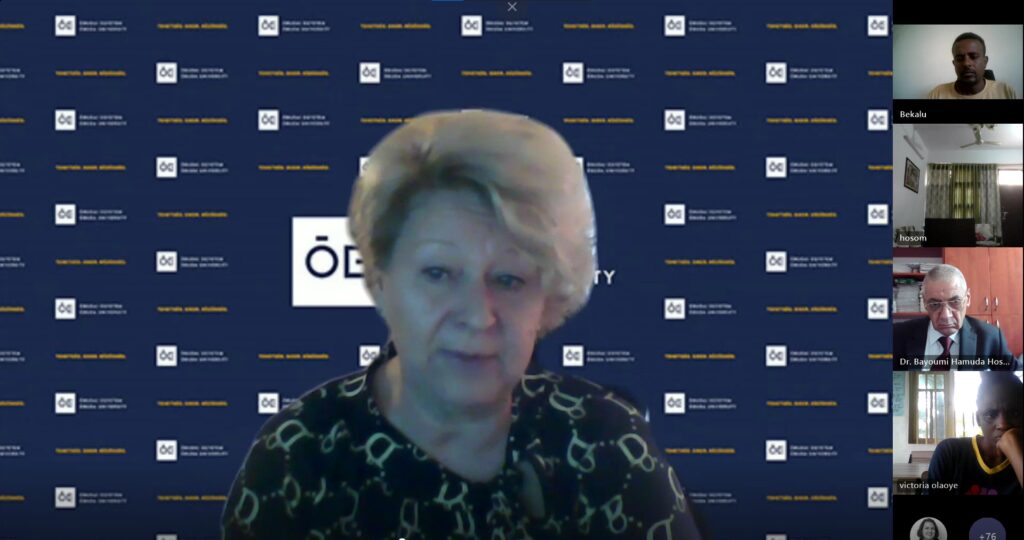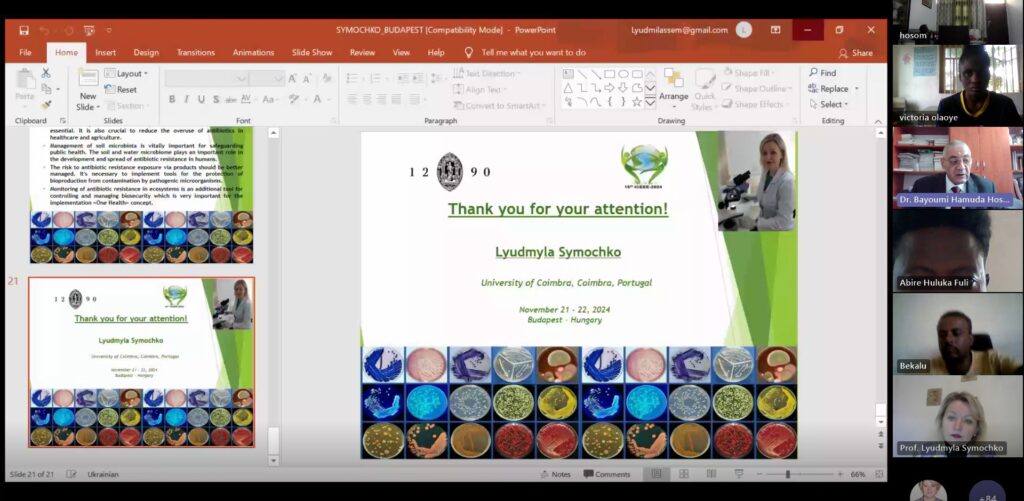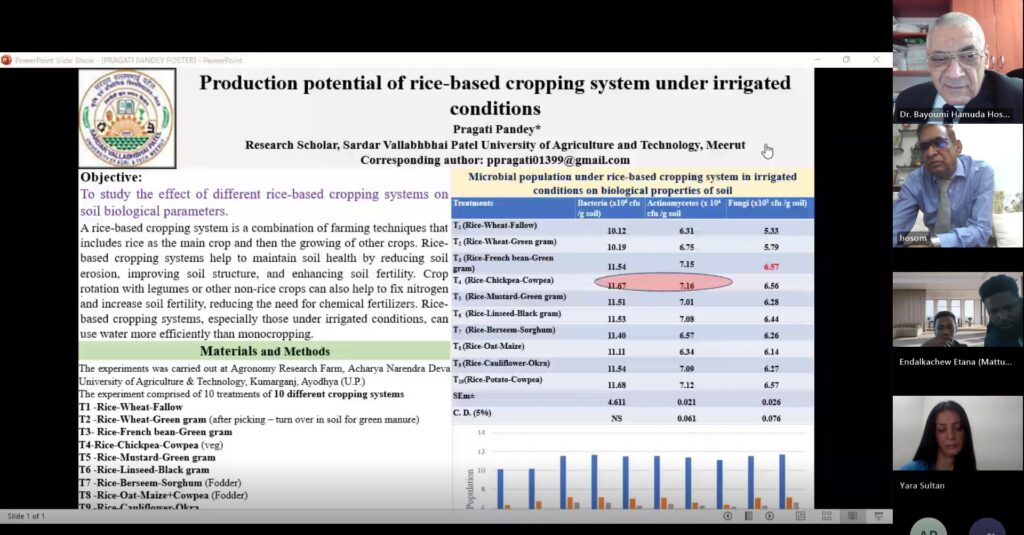Formal Ceremony Marks Graduation of Light Industry Engineers in Székelyudvarhely
In a formal ceremony attended by distinguished guests, students from the Rejtő Sándor Faculty of Light Industry and Environmental Engineering in Székelyudvarhely (Odorheiu Secuiesc), Romania received their light industry engineering diplomas. This event marks another significant boost for the city and its local industry.
Among the prominent attendees were Dr. Ferenc Ilyés, Director of the Székelyudvarhely University Center; Jenő Szász, President of the National Strategy Research Institute; Katalin Szili, Chief Advisor to the Hungarian Prime Minister; and István Szakács-Paál, Mayor of Székelyudvarhely. In their speeches, the high-ranking guests emphasized the importance of national cohesion and higher education in the Carpathian Basin.
The diplomas were presented by Dr. habil. László Koltai, Dean of the Rejtő Sándor Faculty of Light Industry and Environmental Engineering, also conveyed the greetings and congratulations of Rector Prof. Dr. Levente Kovács. In his address, the Dean of the Rejtő Faculty highlighted the crucial role of the graduating engineers in the region’s economic development, underscoring the responsibility that comes with their knowledge and the opportunities they should seize. He stressed the immense importance of light industry engineering education for Székelyudvarhely and the entire Székely Land, as these newly qualified professionals can significantly contribute to the modernization and increased competitiveness of local industry. He encouraged the students to leverage the opportunities their diplomas provide and not shy away from the responsibilities of engineering work.
Also present at the graduation ceremony were Dr. Gabriella Oroszlány, Coordinator of Cross-Border Programs, and Melinda György, Study Coordinator for Rejtő Faculty students in Székelyudvarhely. Their presence further underscored the commitment to Hungarian higher education across the borders and the support from the parent institution in Hungary.
All speeches at the event highlighted the importance of education, knowledge, and innovation. The guests congratulated the graduates and wished them great success in their careers, emphasizing that with their acquired knowledge, they can create value and contribute to the development of their community.
This graduation ceremony not only marked the conclusion of another successful academic year but also signified the beginning of a new chapter in the life of Transylvania and Székely Land, strengthening the city’s role in regional higher education and as an engine of economic development.
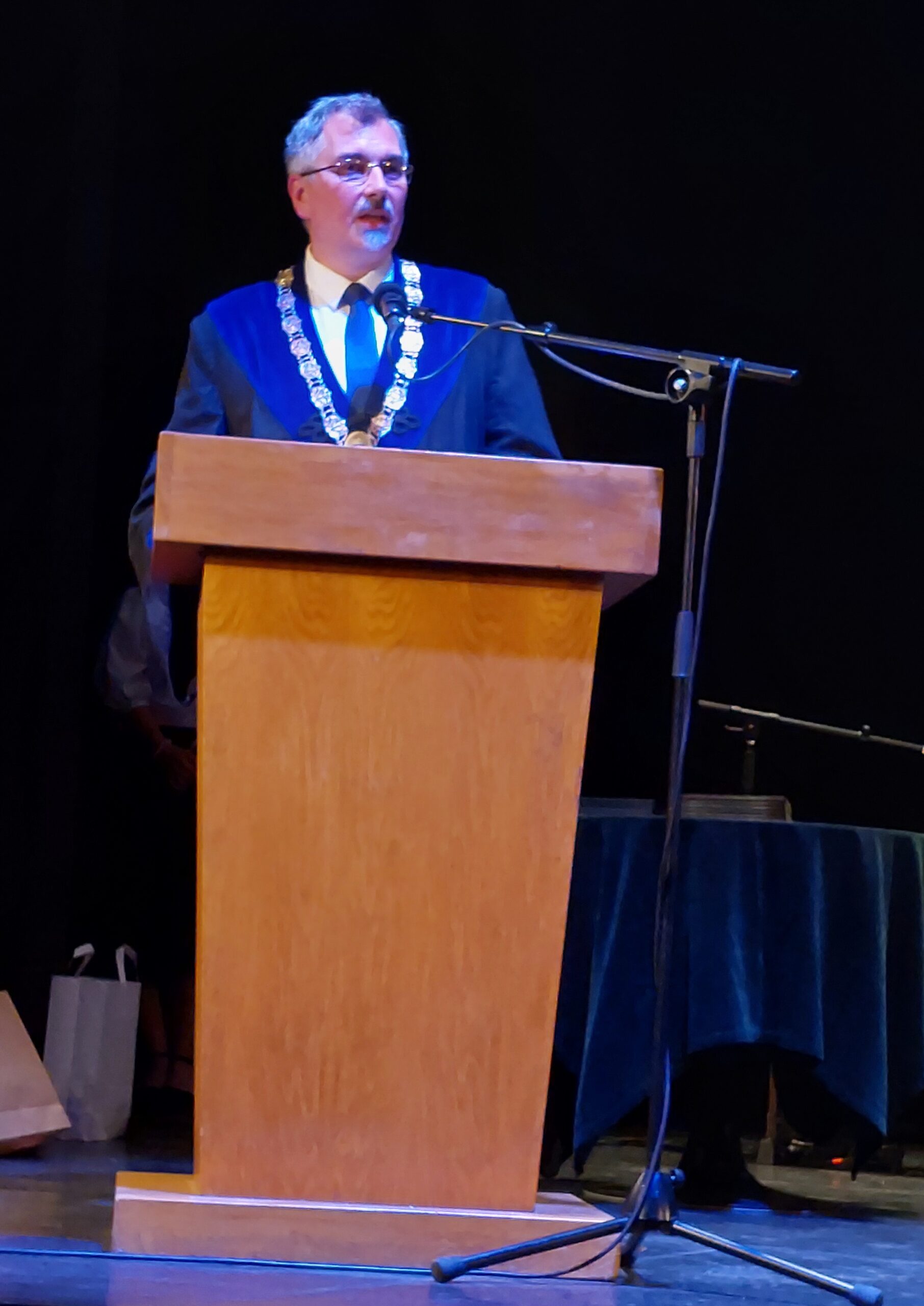
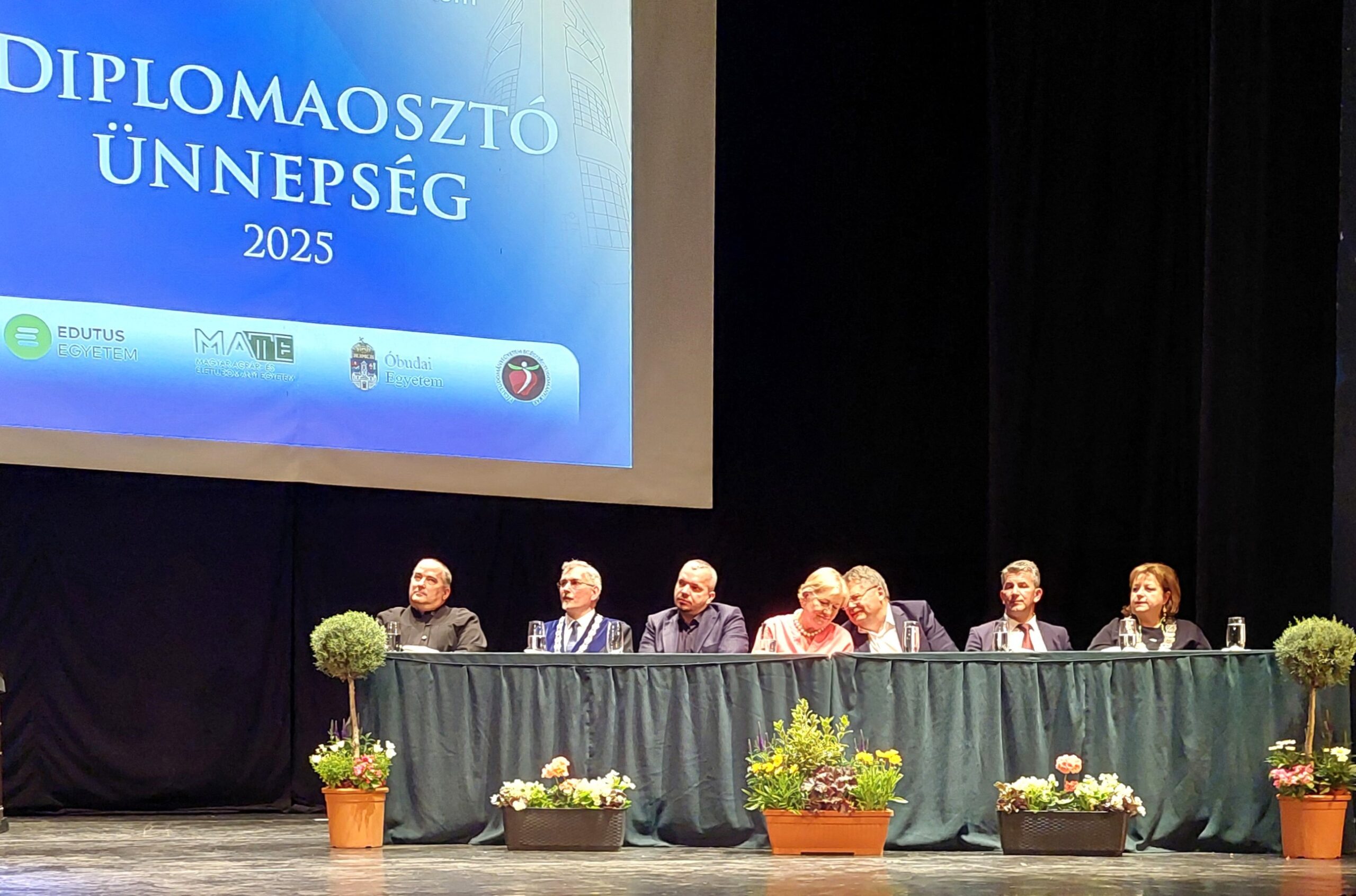
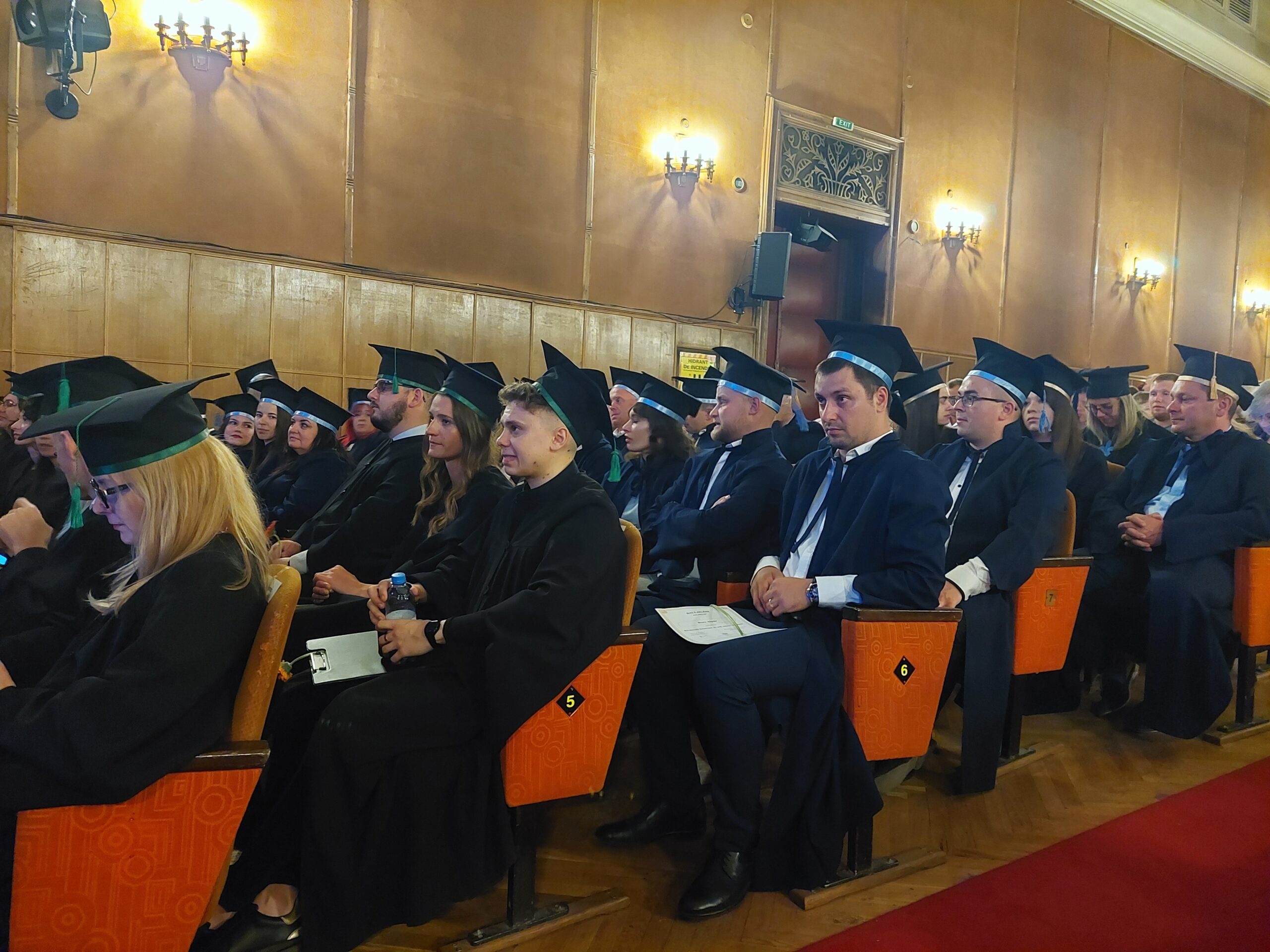
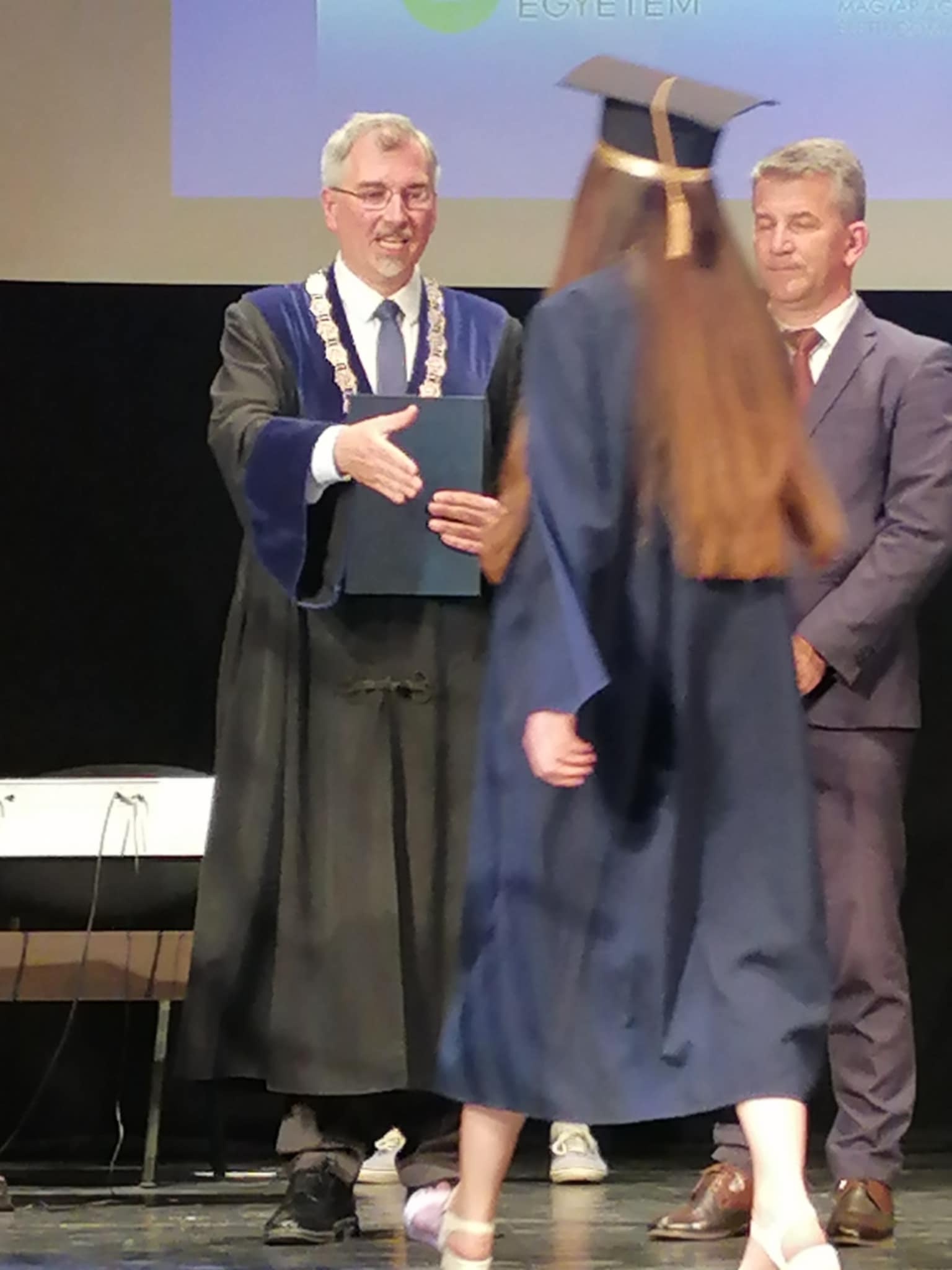
Fashion Show at Rejtő Faculty: Secession 2.0 – Where Past and Present Meet in Fashion
The defining characteristics of Art Nouveau (also known as Secession) – its flexible, winding lines, botanical ornamentation, and stylized animal depictions – all reflect the beauty and harmony of nature. This dreamlike world came to life at the Rejtő Sándor Faculty of Light Industry and Environmental Engineering’s Product Design Institute’s „SECESSION 2.0” fashion show. This event showcased the semester projects of Hungarian and English-speaking industrial product and design engineering students.
The collections blended the visual world of Southern Hungarian Art Nouveau with contemporary fashion tools, bridging the gap between past and present, tradition and innovation. The unique forms, organic decorative motifs, and rich color palette inspired the students during the design process. Thus, the garments are not only beautiful but can also be seen as a reinterpretation of our cultural heritage.
Art Nouveau flourished from the late 19th century to the early 20th century, a period that saw the emergence of a new female ideal: the independent, educated, and active woman. This shift was also evident in fashion, as clothes became more comfortable and practical, allowing women greater freedom of movement. Although it was known by different names in various places (e.g., Art Nouveau, Jugendstil, Secession), the essence remained the same. Furthermore, Hungarian Art Nouveau drew heavily from folk art, exemplified by works from Zsolnay, Ödön Lechner, and Miksa Róth.
This world was evoked by the students of the Rejtő Faculty, including Bohus Anna, Fülöp Dániel, Hirsch Péter, Kiss Maja Lilien, Mészáros Eszter, Liziczai Fruzsina, Nagy Anna Viktória, Rábaközi Dóra, Simon András, Simon Boglárka Júlia, Szabó Lilla, Szabó Anett, Al Akroush Noor Hatem, Hyrah Correia Pereira, Mina Jakovljevic, Ibrahim AlAnoud Muhannad Jawdat, Melvin Ntwali Kadende, Argen Kanatbekov, Laura Alexandra Lozano Sanchez, Santiago José Márquez Dimaté, Willy Gustave Shimwa Duhirwe, Arailym Syeit, Jeanne d’arc Umutoni, and Kadingkham Xaiyavong.
Key faculty and staff members from the Product Design Institute involved in realizing this project include: Dr. habil Edit Csanák DLA, Dr. Dóra Papp-Vid DLA, Dr. Orsolya Nagyné Szabó, Péterné Korona, András Koleszár, Virág Némethy, and Viktória Sima-Molnár.
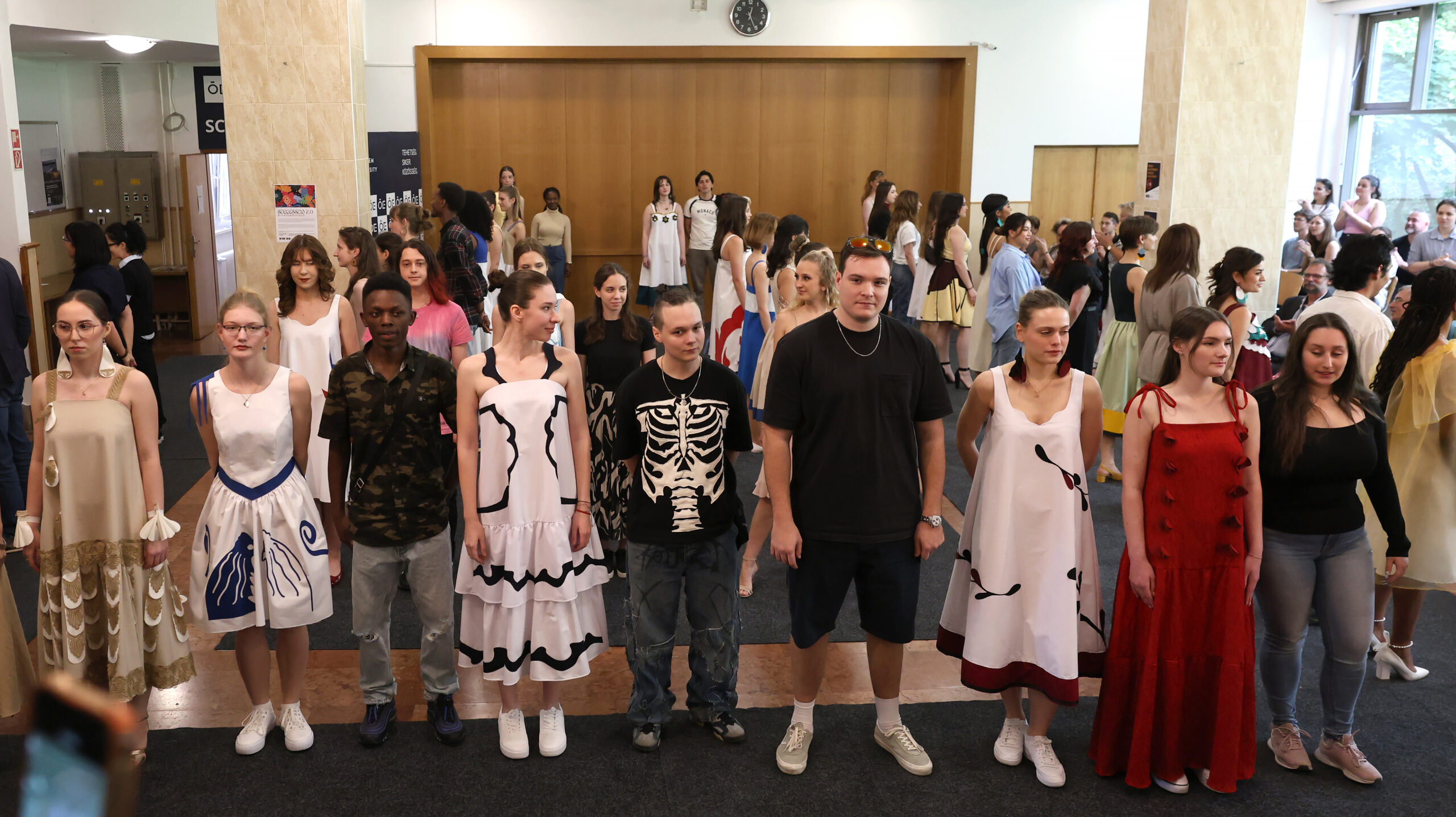
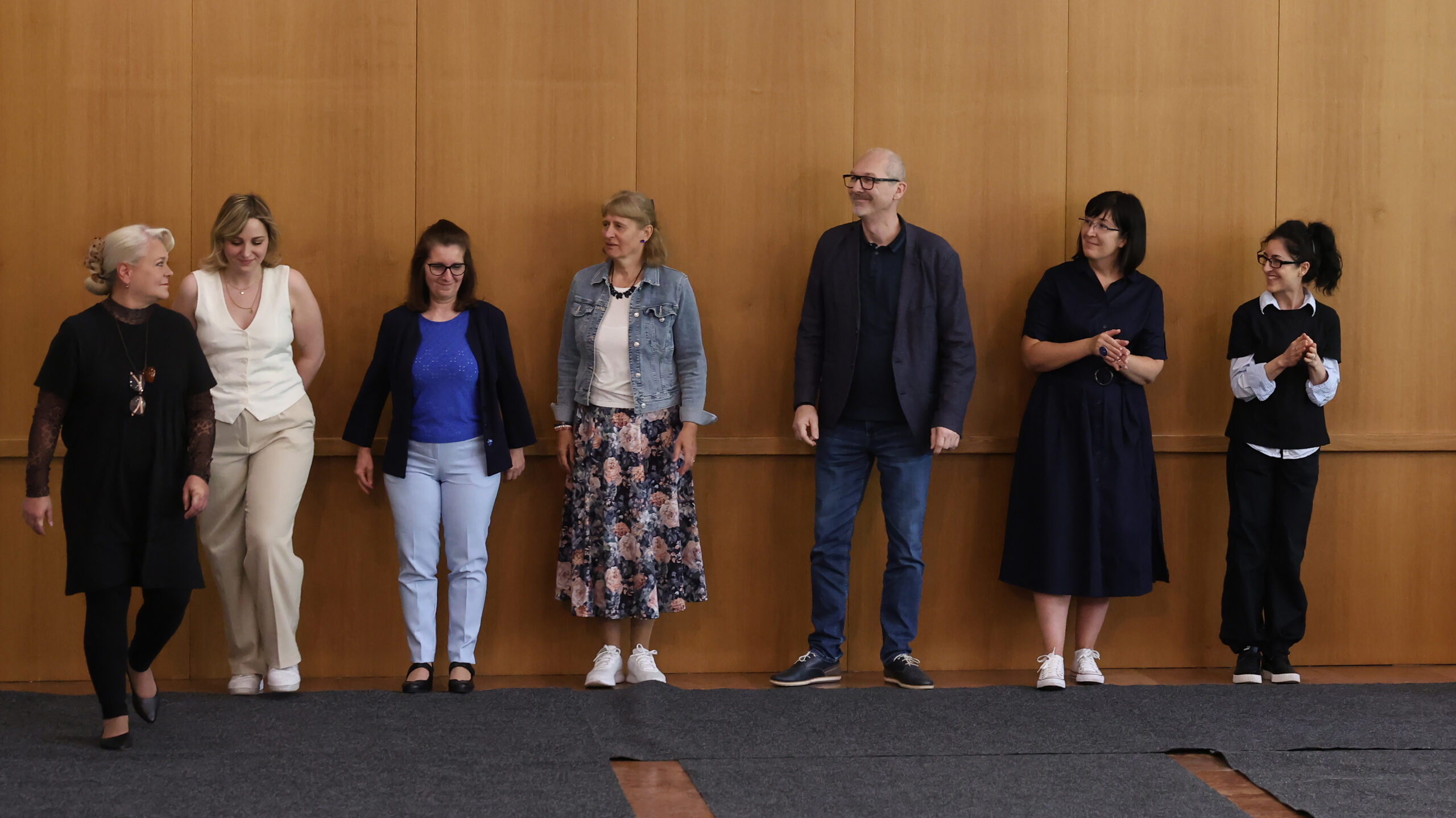
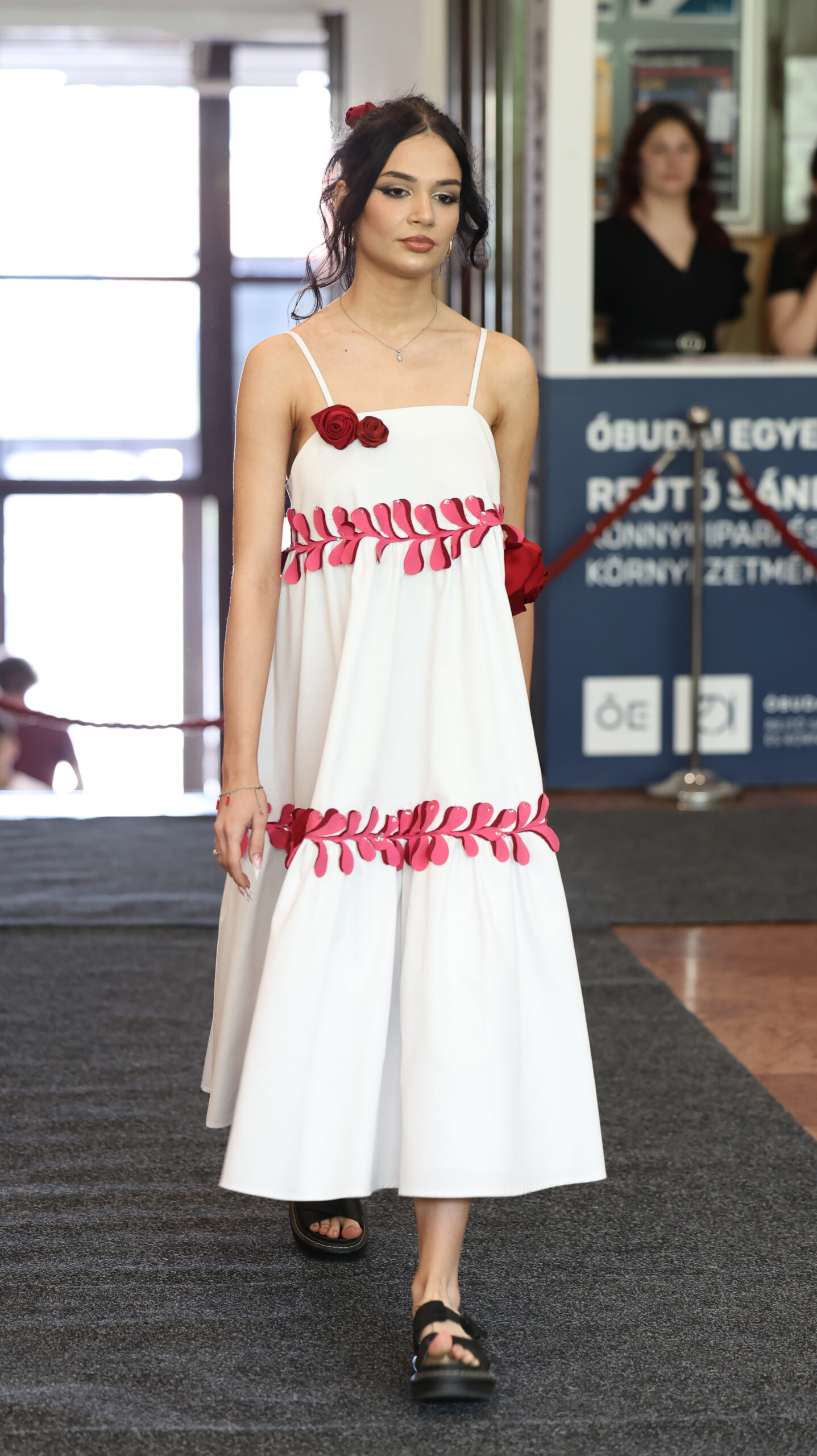
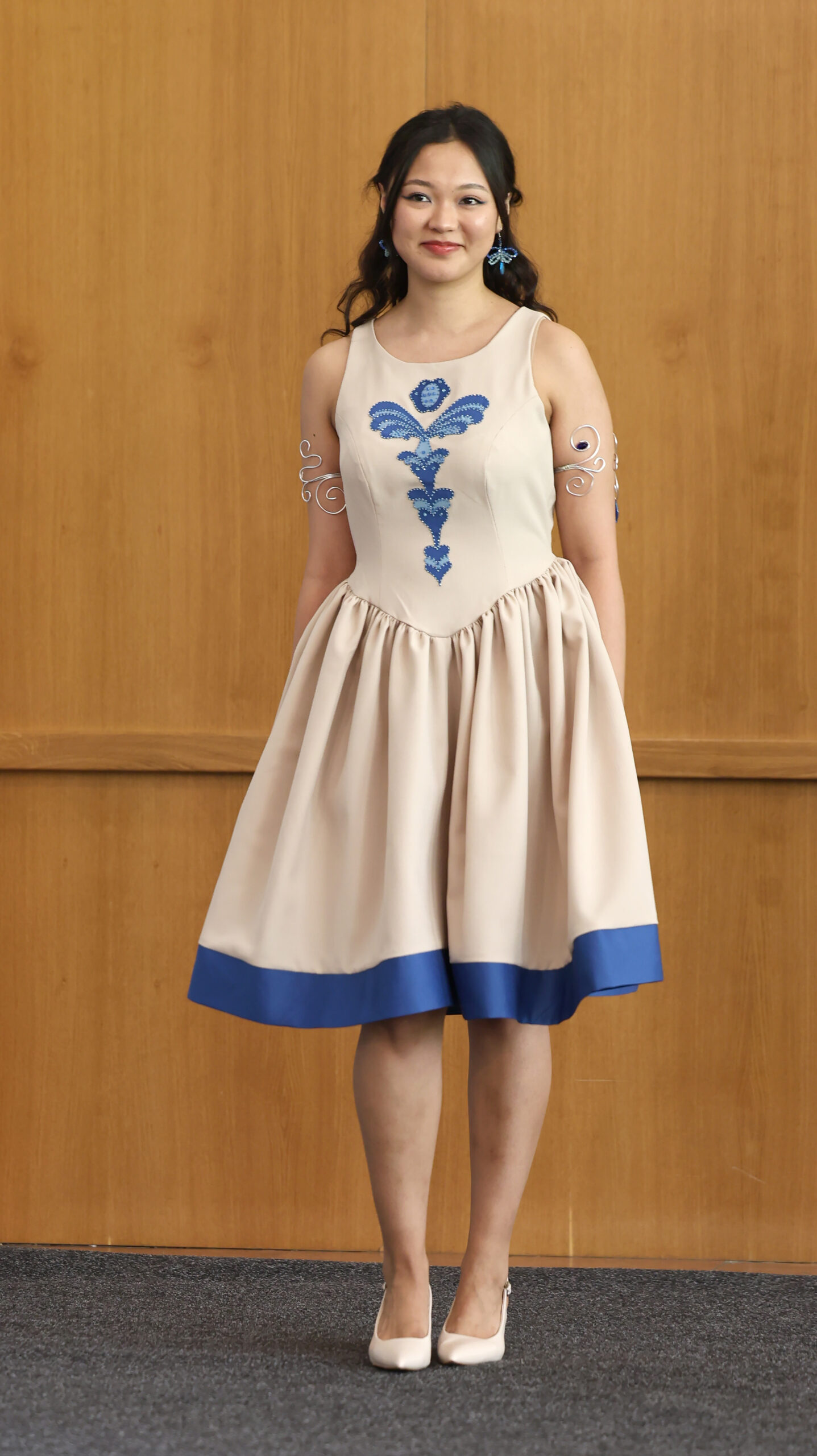
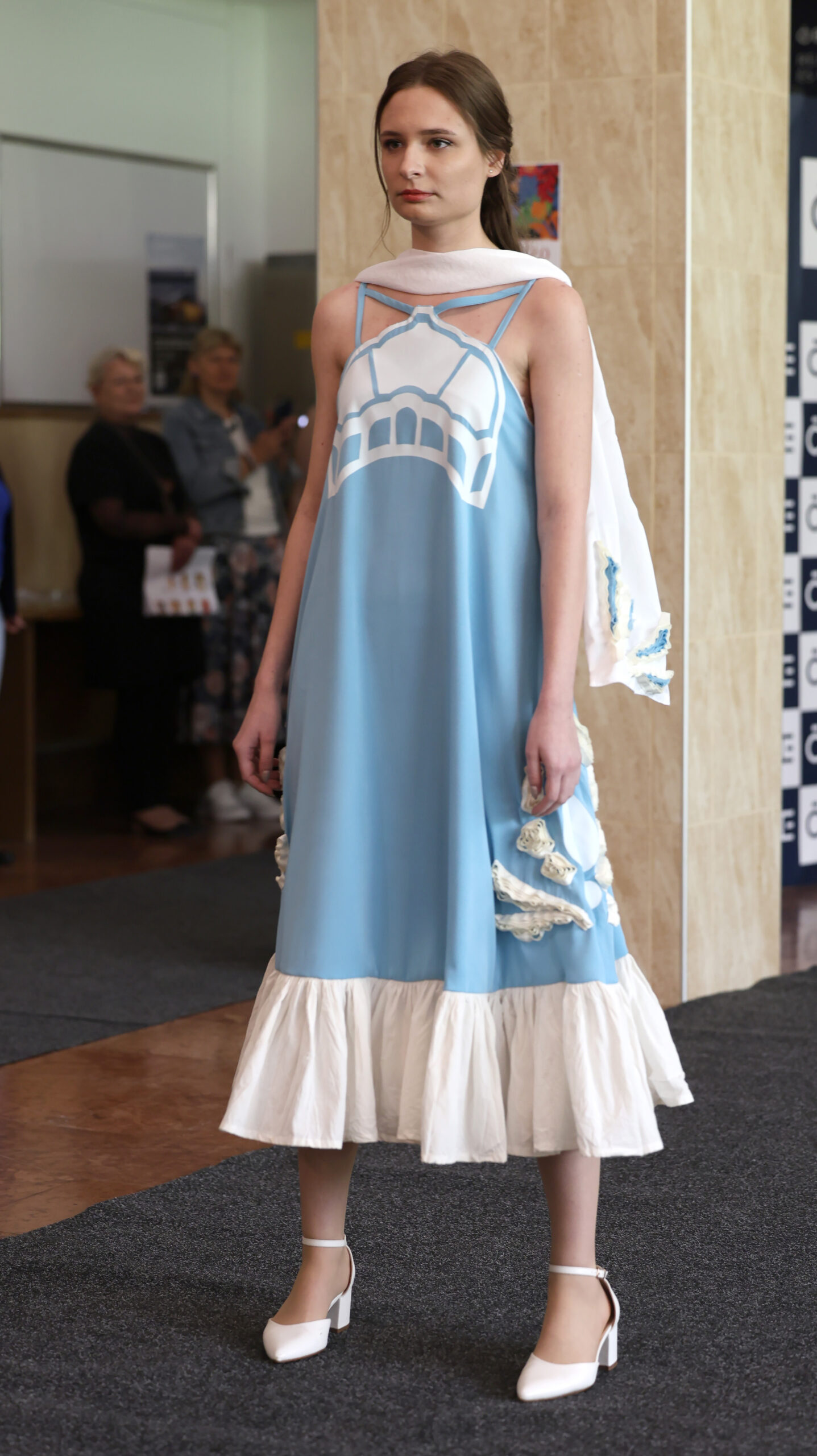
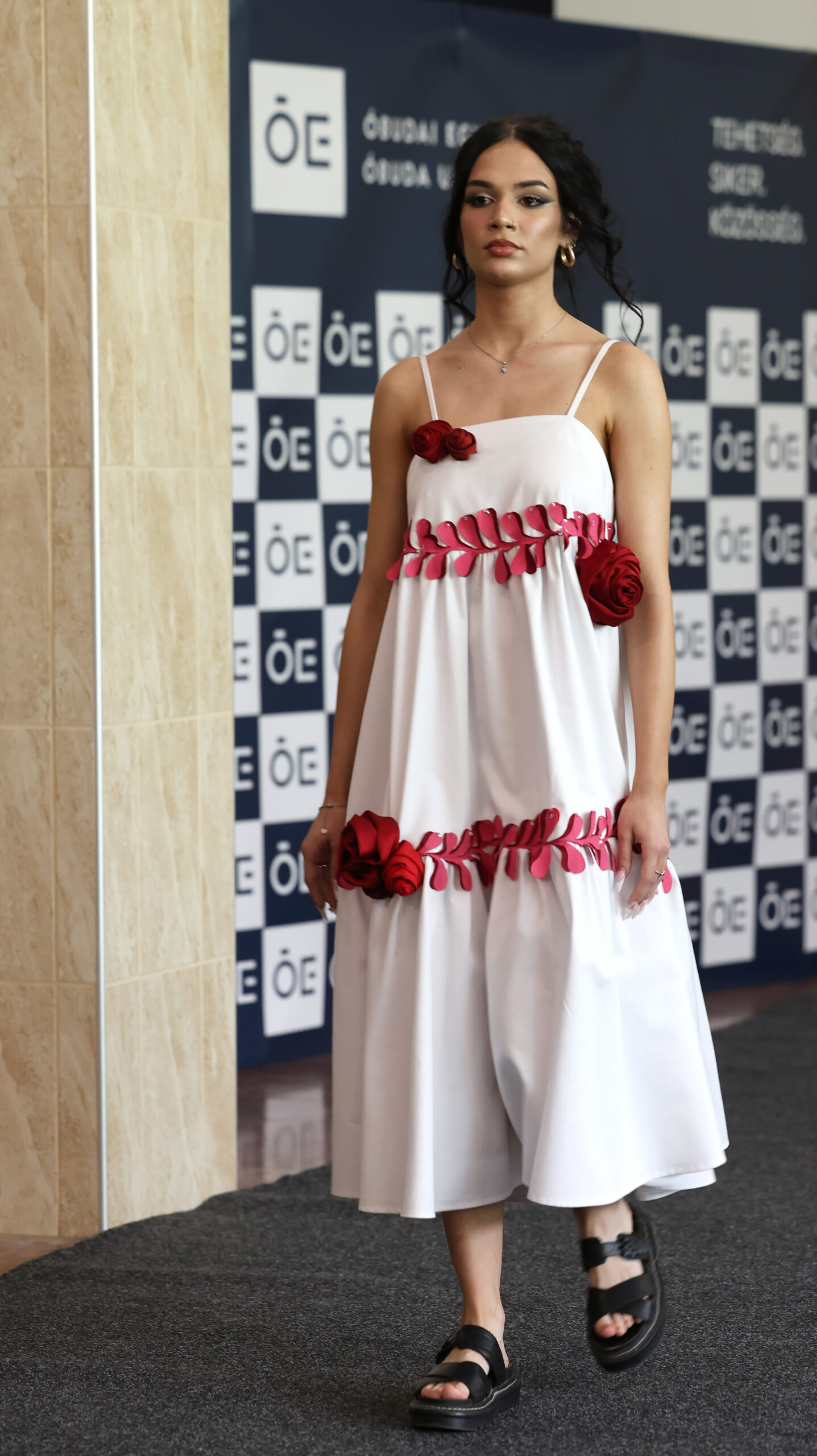
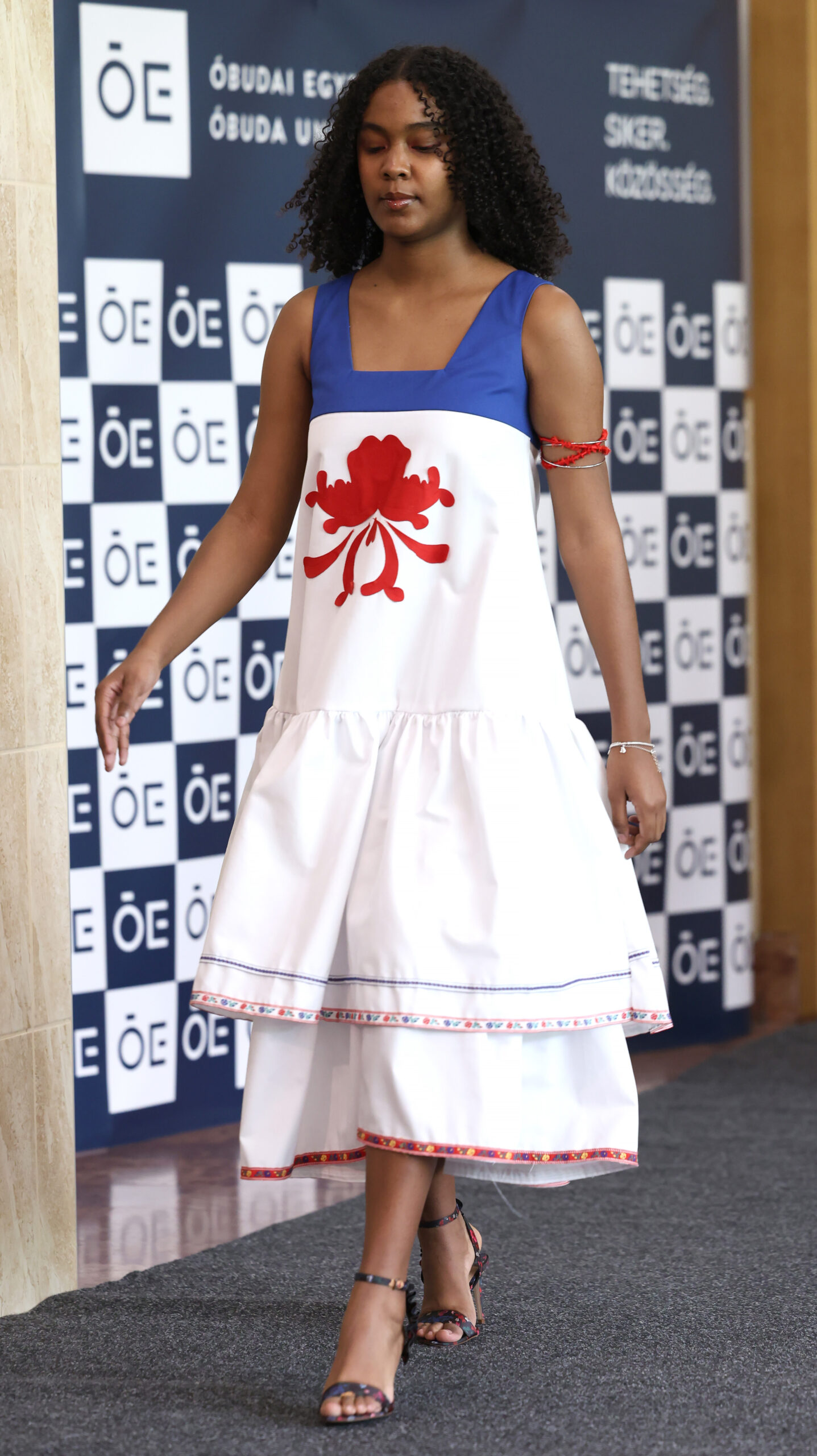
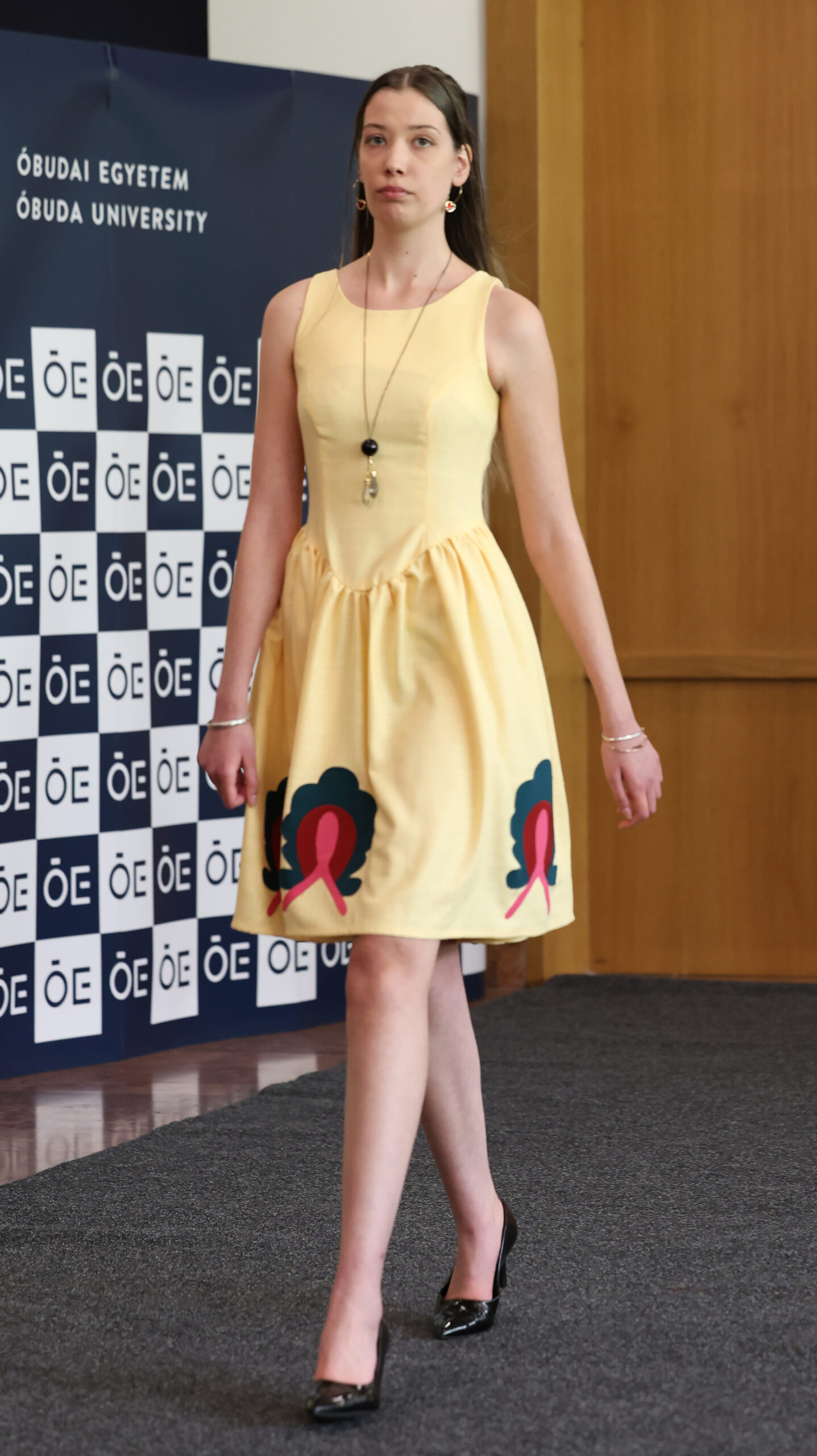
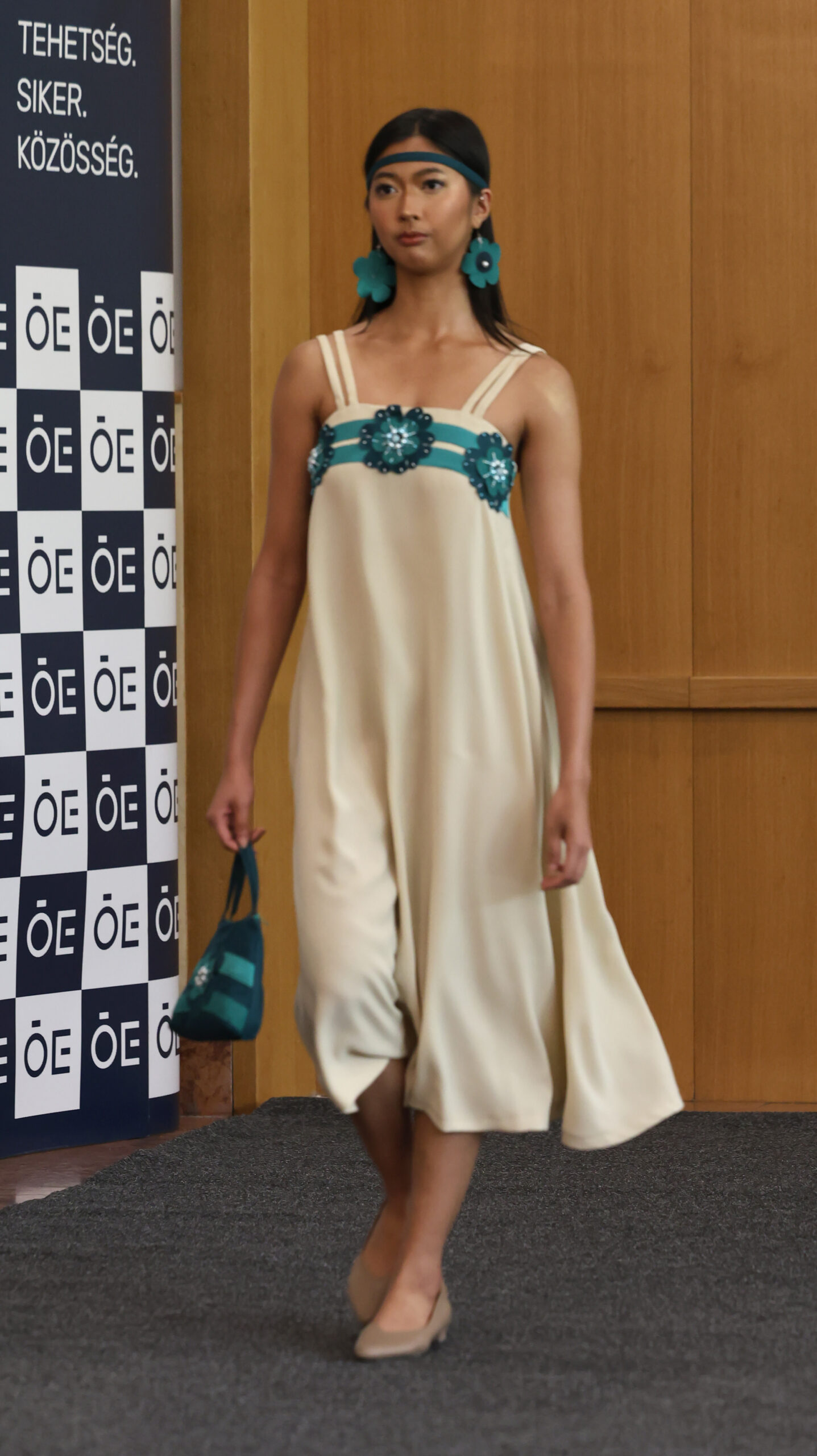

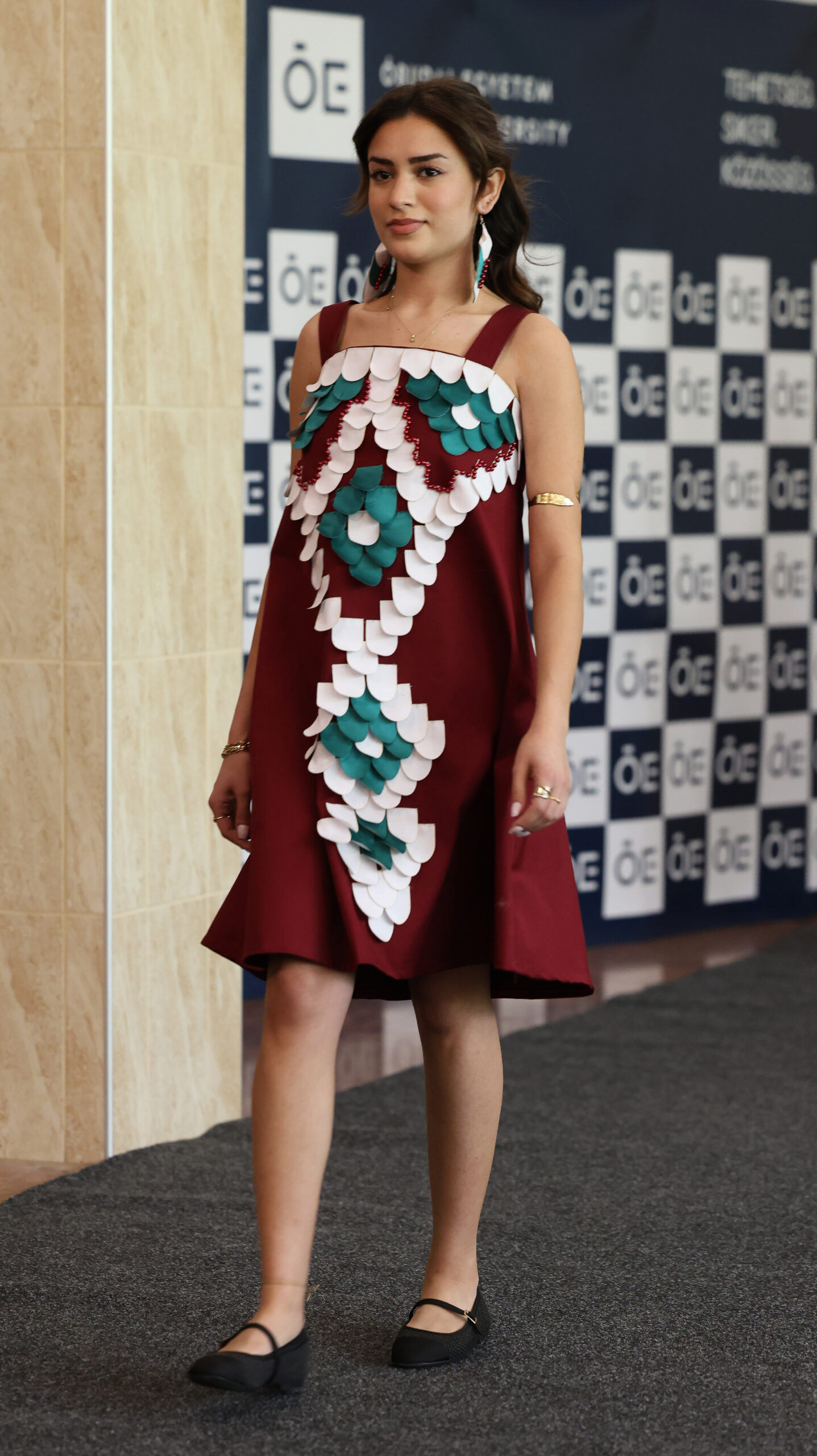
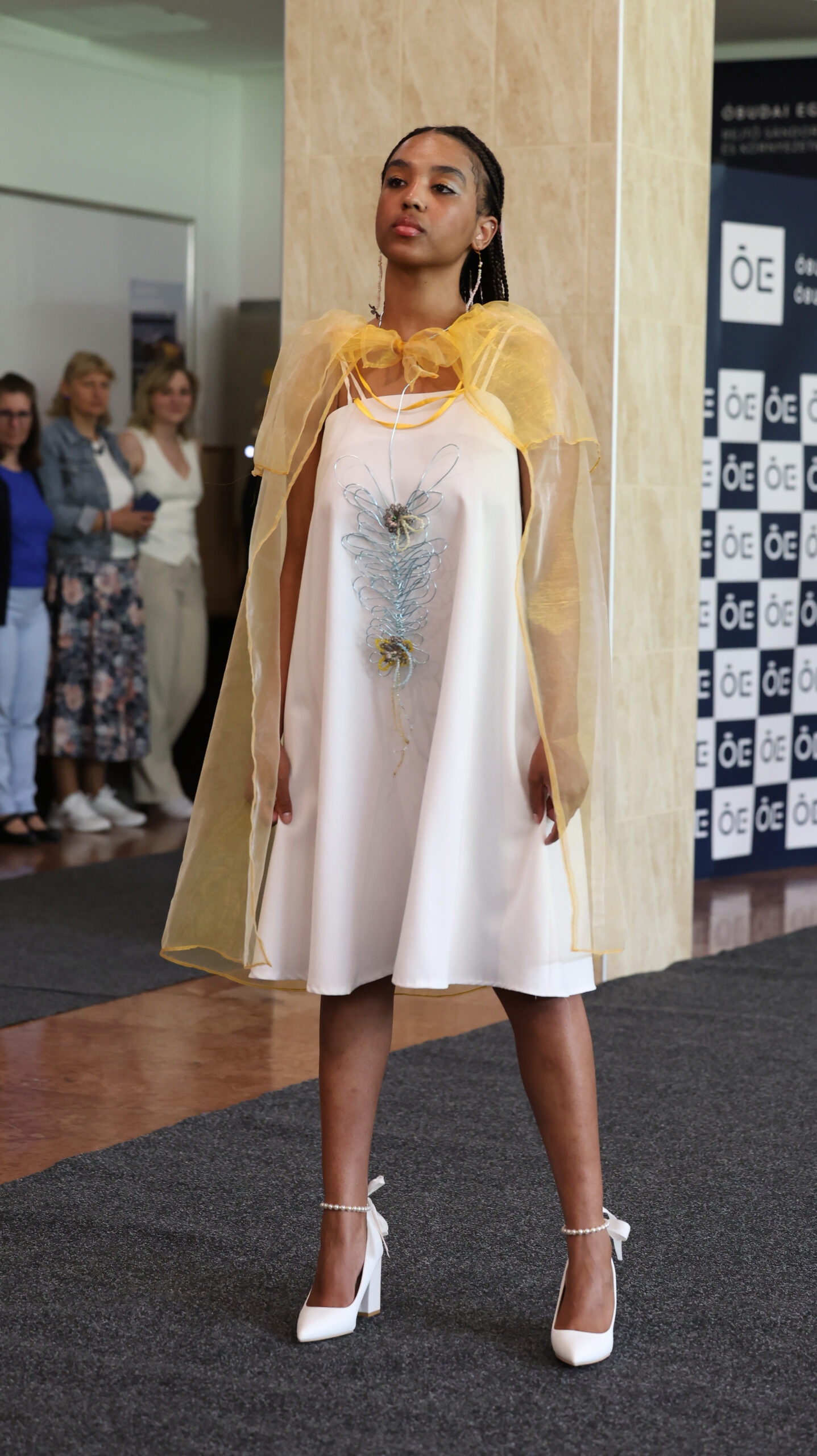
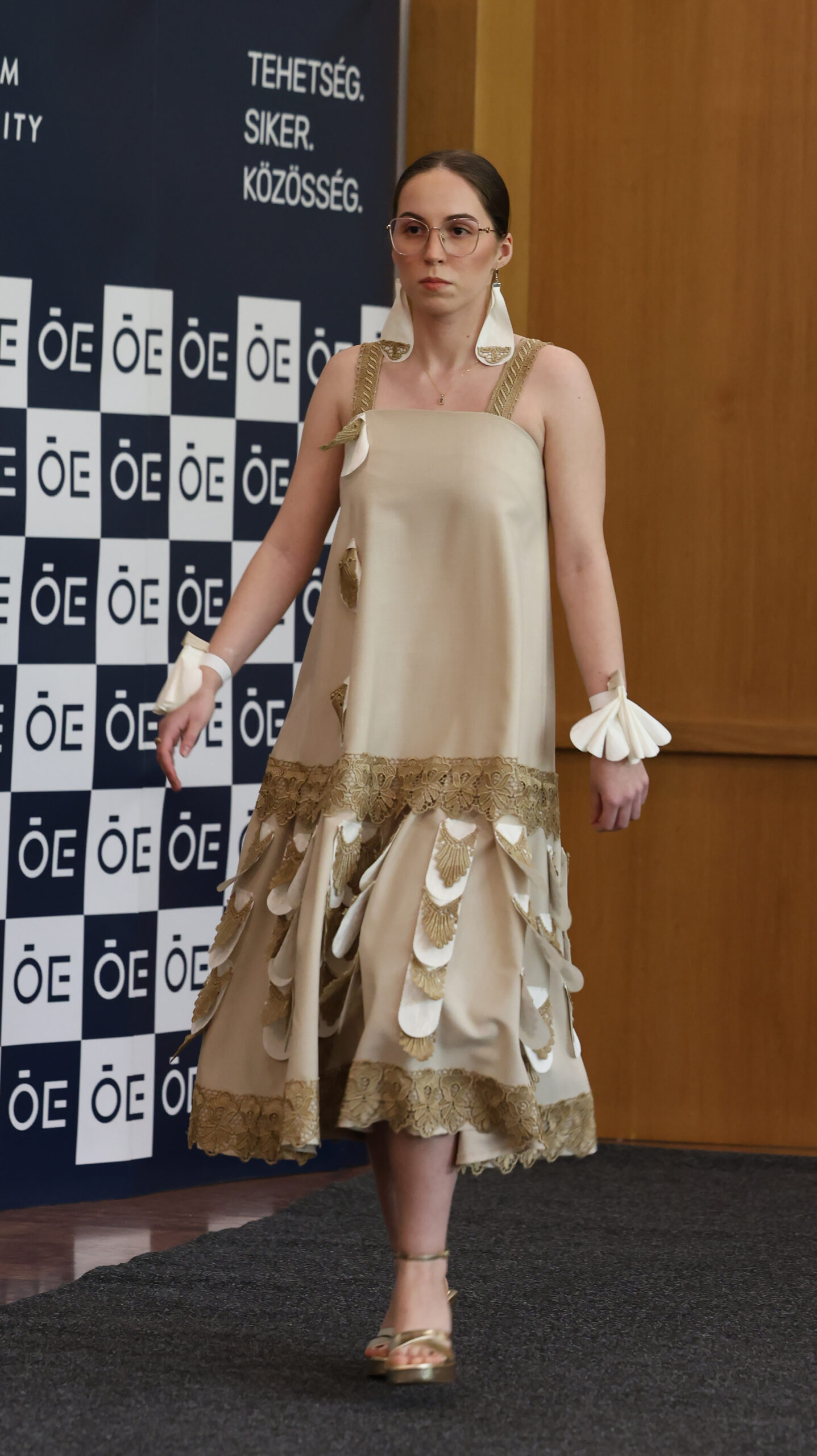
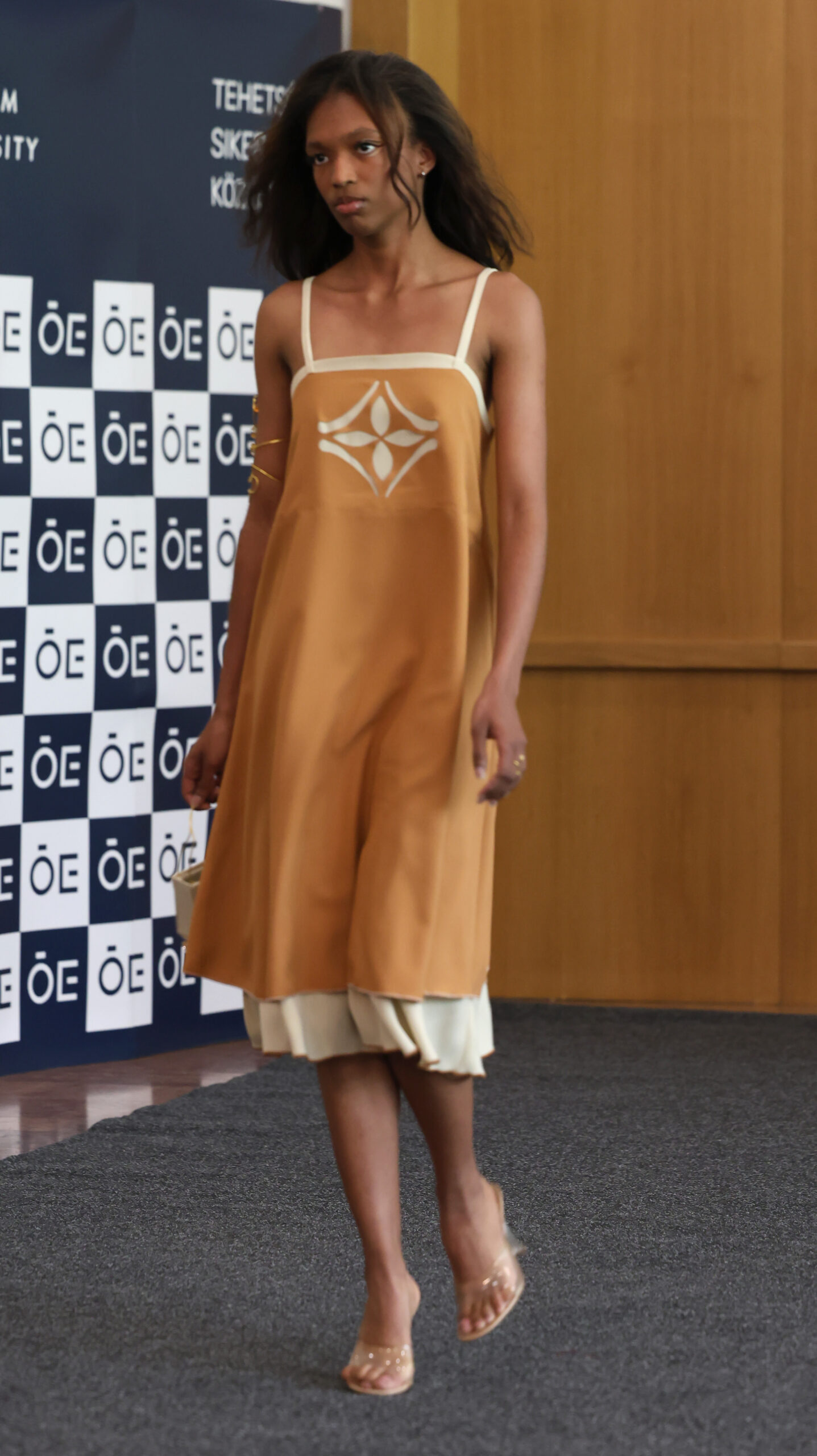
Rejtő Faculty Welcomes Erasmus Students
The Rejtő Sándor Faculty of Light Industry and Environmental Engineering at Obuda University is pleased to welcome Erasmus program students from various countries around the world. These students will participate in the faculty’s diverse educational programs for the upcoming semester and have the opportunity to experience Hungarian culture and language.
The faculty’s international students come from a variety of countries, including Spain, Kazakhstan, Kosovo, and Turkey. The majority of these students are enrolled in product design engineering, environmental engineering, and light industry programs.
The faculty’s leadership and instructors are committed to providing a meaningful and enriching experience for the students. In addition to expanding their professional knowledge, students will have the opportunity to participate in various cultural programs, excursions, and sporting events.
„We are delighted to welcome so many talented and motivated students from Europe and Asia,” said Dr. habil László Koltai, Dean of the Rejtő Faculty. „We are confident that the experiences gained through the Erasmus program will have a long-term positive impact on the students’ academic and personal lives.„
The Erasmus program is a European Union initiative that enables students to study in another country for a semester or a year,” said Norbert Berecz, the Erasmus student mentor, who, together with Ildikó Pásztor, the Dean’s representative for educational affairs, held an orientation program for the students at the RKK. During the presentation, the mentor stated, „The program aims to strengthen international relations, promote cultural diversity, and support students’ professional and personal development.„
The Erasmus program not only provides significant benefits for students but also for the university. The presence of international students enriches the faculty’s community, brings new perspectives to education and research, and contributes to the faculty’s increased international recognition.
The Rejtő Faculty’s past achievements have demonstrated its commitment to fostering international relations and supporting student mobility. The RKK aims to continue welcoming more students through the Erasmus program in the future, and also provide opportunities for Hungarian students to study abroad, taking advantage of the Pannonia program.
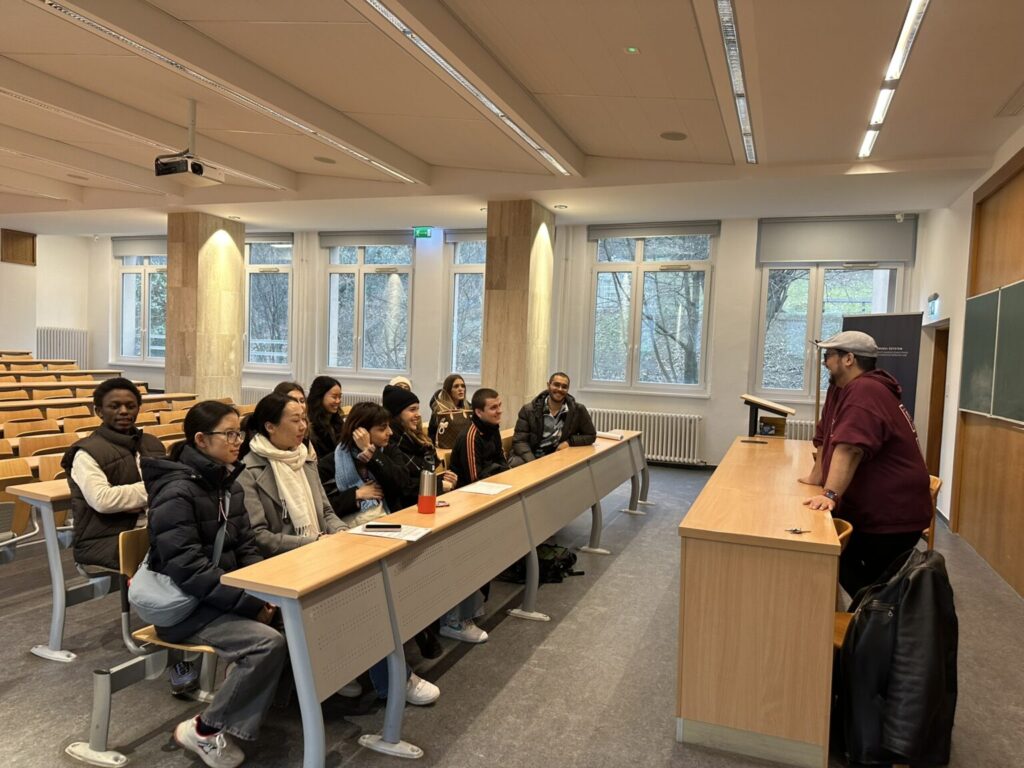
Serbian PhD Students on Study Visit at Obuda University
Two talented Serbian PhD students, Branka Ružicic and Biljana Pećanin, visited the Rejtő Sándor Faculty of Light Industry and Environmental Engineering at Obuda University to participate in a study visit and expand their professional knowledge.
Branka Ružicic is a doctoral student at the Faculty of Technical Sciences, University of Novi Sad, researching Graphic Engineering and Design. Biljana Pećanin is a doctoral student at the Faculty of Physics, University of Belgrade, specializing in condensed matter physics and statistical physics. Both were born in Banja Luka and are currently pursuing their doctoral studies in Serbia.
The purpose of the study visit was to provide the students with new perspectives and experiences in the Hungarian higher education and research environment. They were welcomed by Dr. habil Róbert Németh DLA, an associate professor at Obuda University, who introduced them to the university’s research areas and laboratory facilities.
During the visit, the PhD students attended professional lectures, participated in laboratory tours, and engaged in consultations with the university’s faculty and researchers. They had the opportunity to learn about Obuda University’s research projects and gain insight into Hungarian research culture.
The Serbian students expressed that they found the study visit very useful and greatly appreciated the professional knowledge and support of Obuda University’s faculty and researchers. They expressed hope for future collaborations with the university.
The study visit contributes to strengthening international relations between Obuda University and Serbian universities, as well as promoting scientific and cultural exchange.
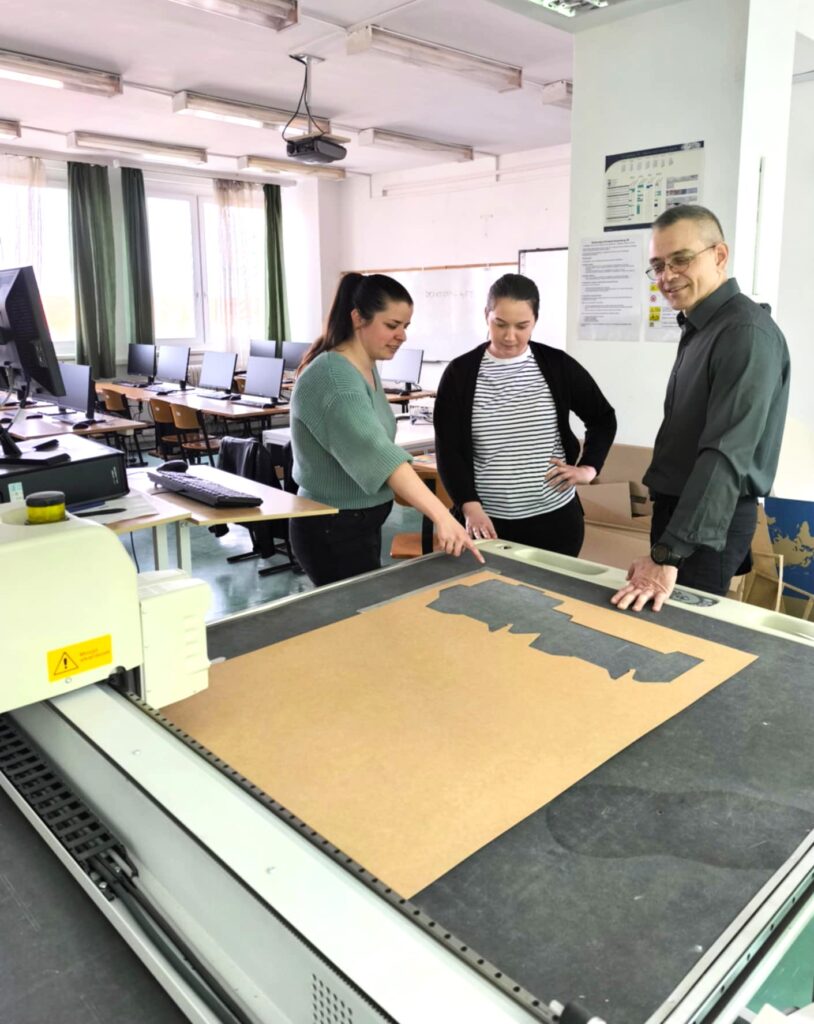
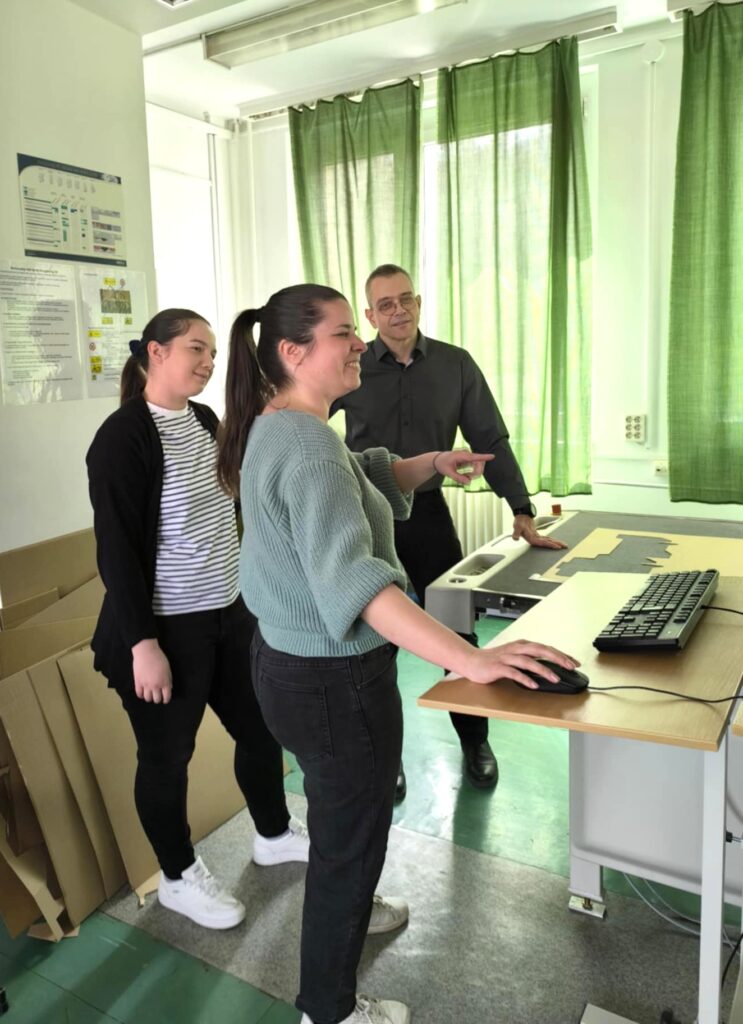
International Students for Sustainable Technologies at Rejtő Faculty of Óbuda University
The Rejtő Sándor Faculty of Light Industry and Environmental Engineering at Obuda University is delighted to have welcomed a new cohort of international Erasmus students from across the globe. These students will spend the upcoming semester participating in the faculty’s diverse educational programs and immersing themselves in Hungarian culture and language.
The international students hail from various countries, including Spain, Kazakhstan, Kosovo, and Turkey. A majority of the students will be engaged in product design engineering, environmental engineering, and light industry programs, with a strong emphasis on sustainability.
The faculty’s leadership and instructors are committed to providing a fulfilling and enriching experience for the students. In addition to expanding their professional and environmental knowledge, students will have the opportunity to participate in various cultural programs, excursions, and sporting events.
„We are thrilled to welcome such talented and motivated students from Europe and Asia,” said Dr. habil. László Koltai, Dean of the Rejtő Faculty. „We are confident that the experiences gained through the Erasmus program will have a lasting positive impact on the students’ academic progress and personal lives.”
The Erasmus program is a European Union initiative that allows students to study in another country for a semester or a year. Norbert Berecz, the Erasmus student mentor, who, together with Ildikó Pásztor, the Dean’s Commissioner for Educational Affairs, held an information program for the students at the RKK, said: „The program aims to strengthen international relations, promote cultural diversity, and support students’ professional and personal development, as well as strengthen their sense of responsibility for the future.”
The Erasmus program not only provides significant benefits to the students but also to the university. The presence of international students enriches the faculty’s community, brings new perspectives to education and research, and contributes to the faculty’s growing international recognition.
The Rejtő Faculty’s past achievements have demonstrated its commitment to fostering international relations and supporting student mobility. The RKK aims to continue welcoming more students through the Erasmus program and to provide opportunities for Hungarian students to study abroad through the Pannonia program.
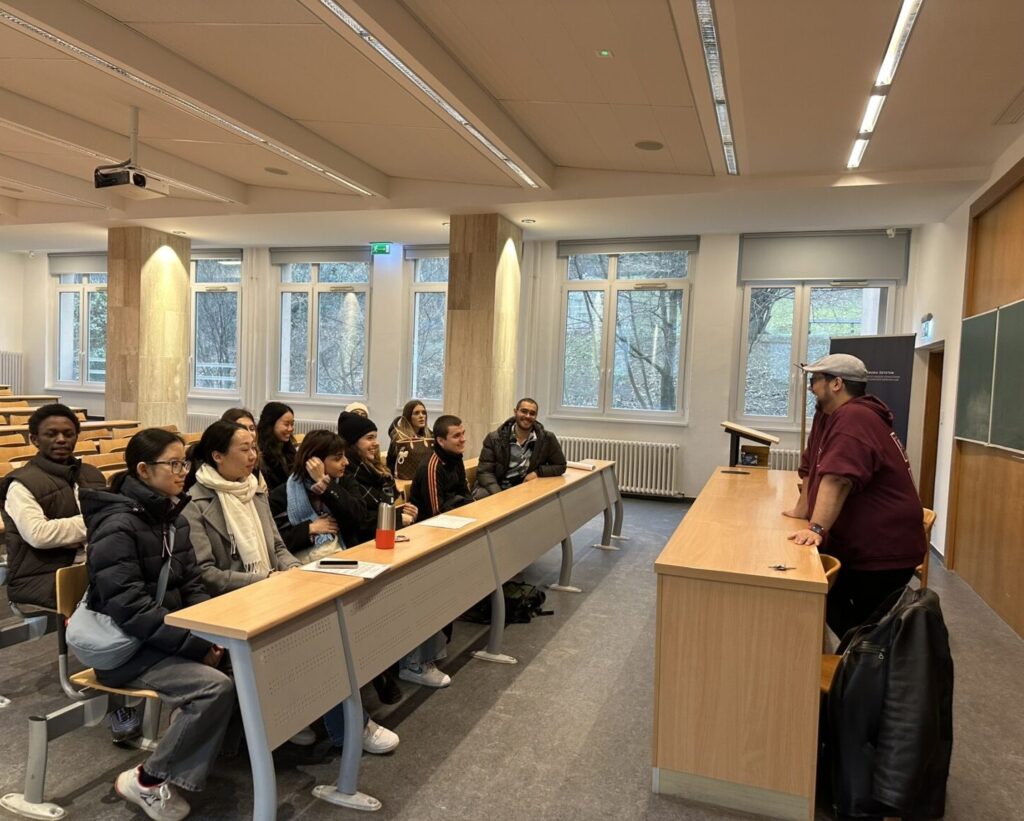
Hungarian Student Honored for Groundbreaking Recycling Technology at National Environmental Awards
Budapest, Hungary – March 1, 2024 – The 24th National Environmental Meeting and Awards Gala concluded today, recognizing outstanding contributions to environmental sustainability. The event, hosted by the Association of Environmental Enterprises (KSZGYSZ), bestowed the prestigious „For the Environment” Award upon Márton Csongor Tóth, a student at Obuda University’s Rejtő Faculty, in the youth category.
KSZGYSZ has celebrated significant environmental initiatives since 2001, promoting best practices in sustainable development across industry, science, and education. This annual award plays a pivotal role in shaping the future of the green economy, with a professional jury selecting recipients who have made exceptional strides in environmental protection.
Tóth was honored for his innovative technology aimed at metal recycling and industrial decarbonization, along with his educational endeavors. Dr. Csaba Ágoston, an assistant professor at the Faculty and the Association’s president, praised Tóth’s achievement: „Márton Csongor Tóth, a student of the Rejtő Sándor Faculty of Light Industry and Environmental Engineering at Óbuda University, earned this award with his outstanding thesis and research. His thesis explores the application of an innovative technology to improve the recycling of aluminum and its alloys, which could play a key role in advancing the circular economy and decarbonization efforts.”
„His work focuses on a selective sorting technology based on the LIBS (Laser-Induced Breakdown Spectroscopy) method, which enables the precise and rapid fractionation of aluminum waste. This method allows for the efficient and energy-saving selection of alloys crucial to the industry, such as aluminum alloys, thereby reducing the environmental impact of production and contributing to sustainable raw material use. These practical solutions contribute to creating a sustainable future by considering both industrial and environmental aspects,” Ágoston added.
The Faculty expressed its support for the event and pride in Tóth’s achievement. „We congratulate Csongor and all the other awardees, and thank KSZGYSZ for this opportunity,” a Faculty spokesperson stated.
A drop of water in need should be repaid with a spring in deed.
We interviewed Liang Xinyue, a former environmental engineering graduate student on our English language course, about his experiences and life.
What have you been doing since graduation?
After completing my undergraduate studies at Óbuda University, I returned to China and interned in the field of environmental science and engineering for about half a year. Shortly after, I applied for a master’s program in the same year, also focusing on environmental engineering. Time flies, and my years of study have passed in the blink of an eye. I am now a PhD candidate at the Hungarian University of Agriculture and Life Science, currently awaiting my final defence.
What is your favourite memory from college?
If I look back on my time on campus, what I cherish the most is having plenty of time for myself—being able to sit down and learn a new course, exploring ideas together with professors and classmates. At the time, it all felt so ordinary, but looking back now, I truly miss those moments.
How has your education helped you in your career?
Through continuous learning, the accumulation of theoretical knowledge has helped me better understand the underlying principles of how the real world of the environment operates. It’s like climbing a staircase, you need to reach a certain level before you can see different views, right?
What are you most proud of in your life?
I consider myself a very ordinary girl, but when I look back on the years I’ve been through, studying in Hungary for so long and spending years apart from my family, I feel proud of my perseverance. Because I have always wanted to carve out my path with independence and dedication.
What are you most grateful for the OE RKK?
An old Chinese says, „A drop of water in need should be repaid with a spring in deed.” At Óbuda University, I was like a fledgling, receiving immense care and support. The professors there gave me the courage to explore new worlds and instilled in me a sense of kindness and warmth from the very beginning.
Congratulations on your success and thank you for the interview!
Obuda University’s English-language Industrial Product Design program graduates receive diplomas
The diplomas were presented to the graduates of the English-language industrial product design program at the Rejtő Sándor Faculty of Light Industry and Environmental Engineering of Obuda University in a ceremonial setting. The event was attended by the faculty’s leaders, instructors, and the graduates’ families and friends.
At the beginning of the graduation ceremony, Dr. habil. László Koltai, Dean of RKK, greeted those present. In his speech, he praised the achievements of the graduates and emphasized that the university is proud to have such talented and diligent students.
„You have worked hard over the past years, completing numerous exams to reach this milestone. Your perseverance, diligence, and creativity have paid off. We are proud of you and we are confident that you will be successful in your profession,” said the Dean.
After the welcoming speech, the graduates were able to receive their diplomas. The diplomas were handed over by the Dean of the Rejtő Faculty and the Director of the Product Design Institute, Dr. Edit Csanák DLA, who said in connection with the ceremony: „I am particularly pleased that our English-language training was so successful. This proves that our training is internationally competitive and our students can find their place anywhere in the world.„
At the end of the ceremony, the graduates took the engineers’ oath before the faculty management. After that, they thanked the university, the instructors, and their families for their support. Several of the new graduates emphasized that during their years at the university, they not only gained professional knowledge but also made friendships that would last a lifetime.
The graduation ceremony was a memorable day for the graduates. The university management and instructors congratulated the new graduates and wished them every success in the future.
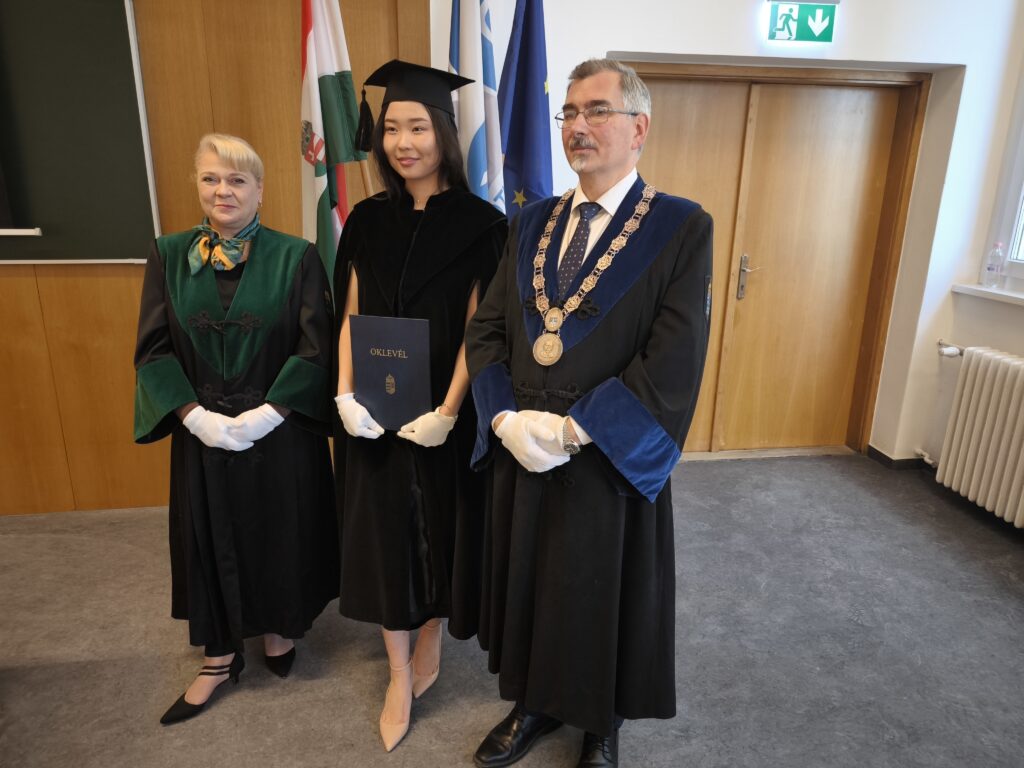
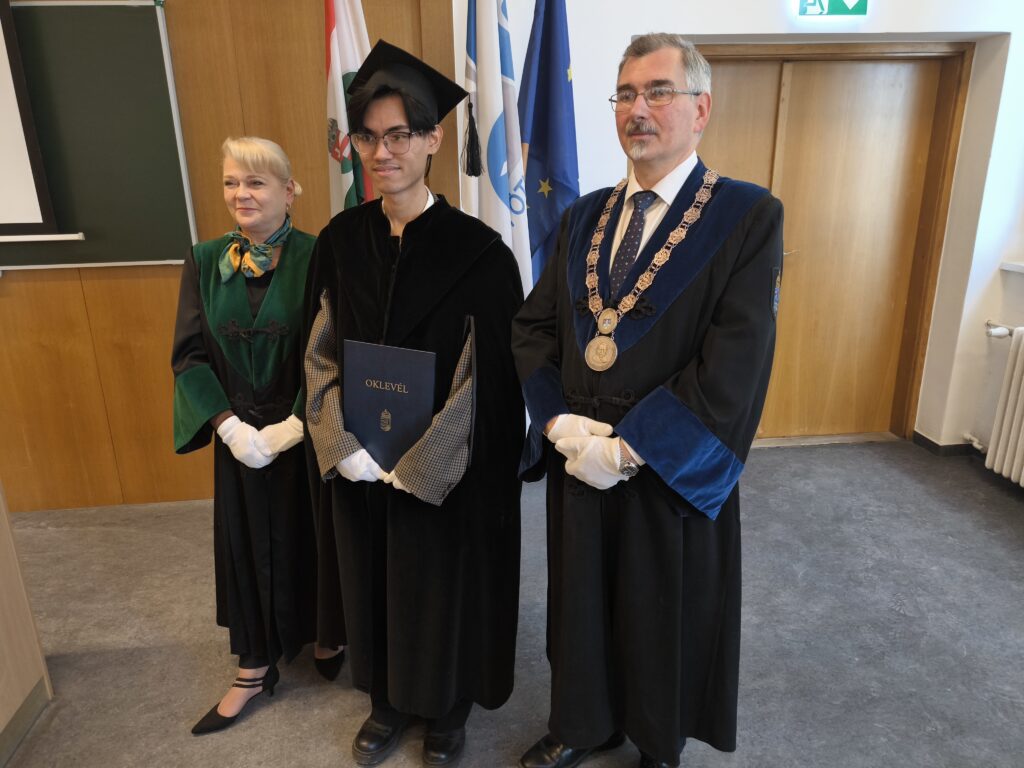
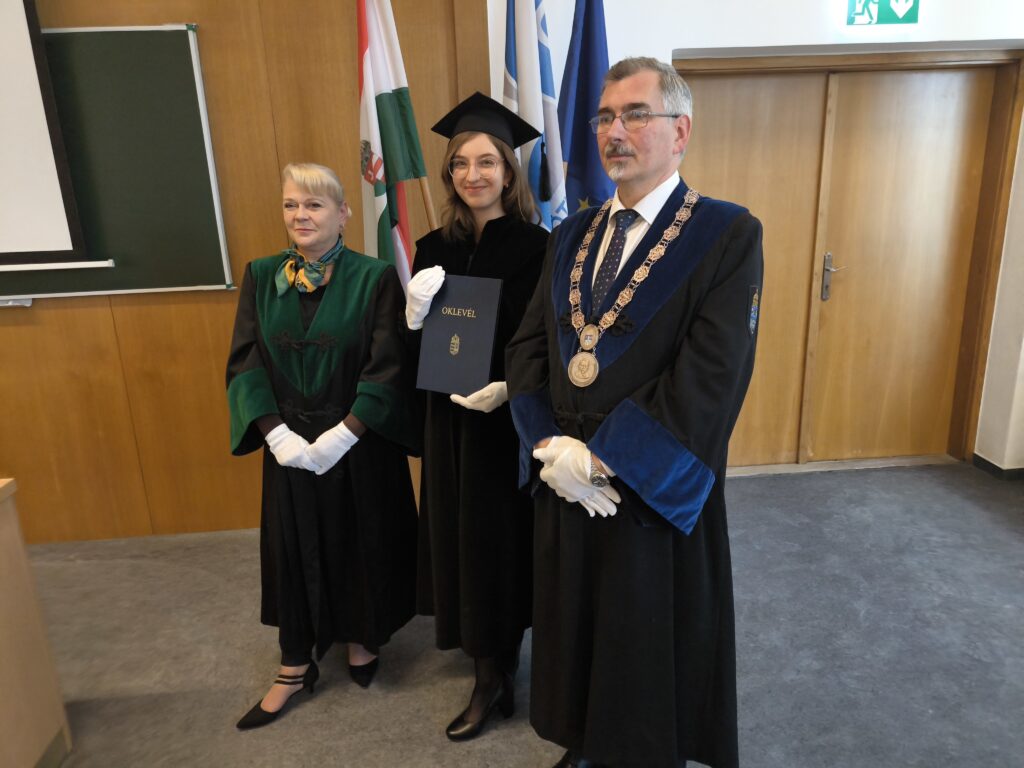
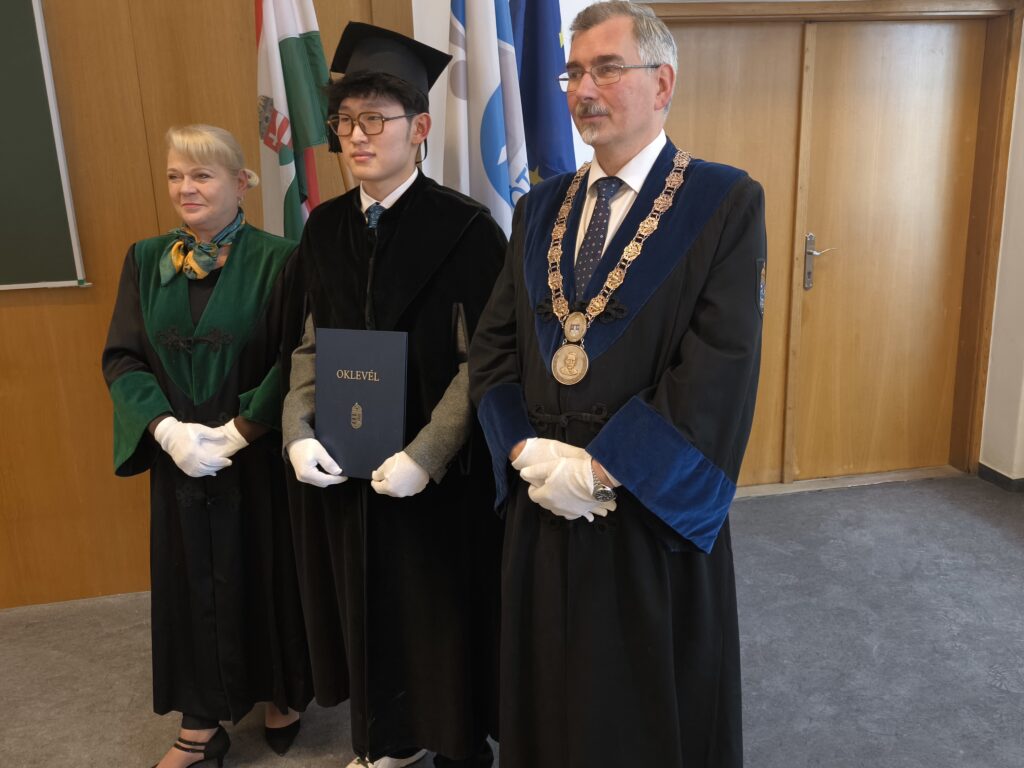
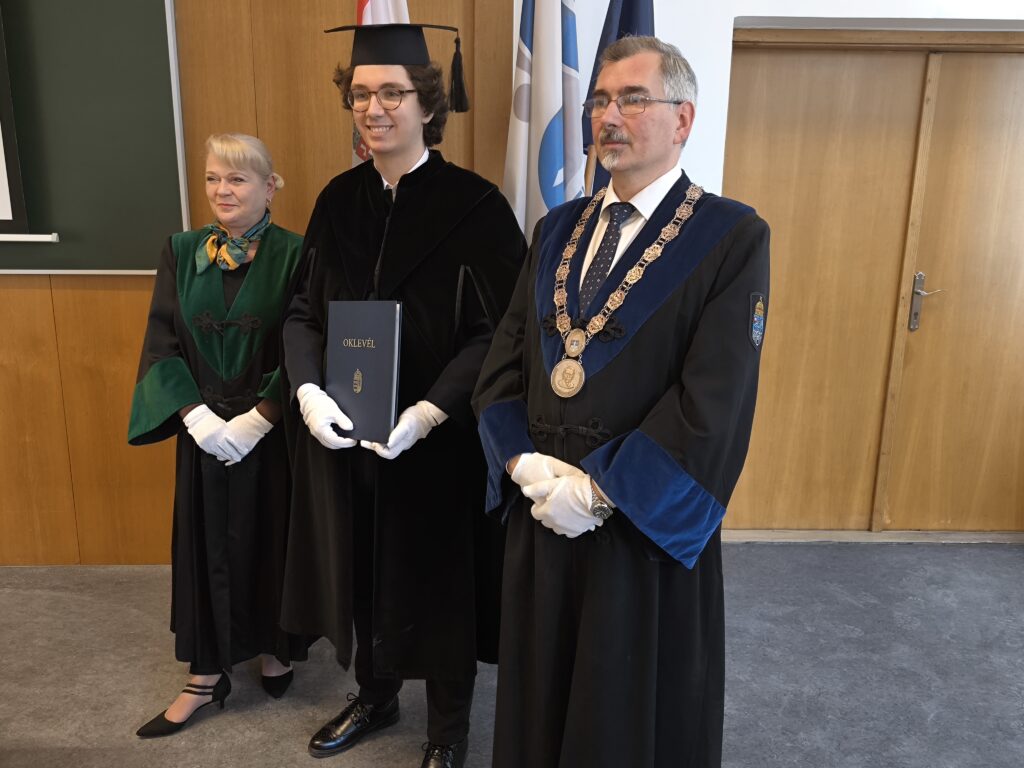
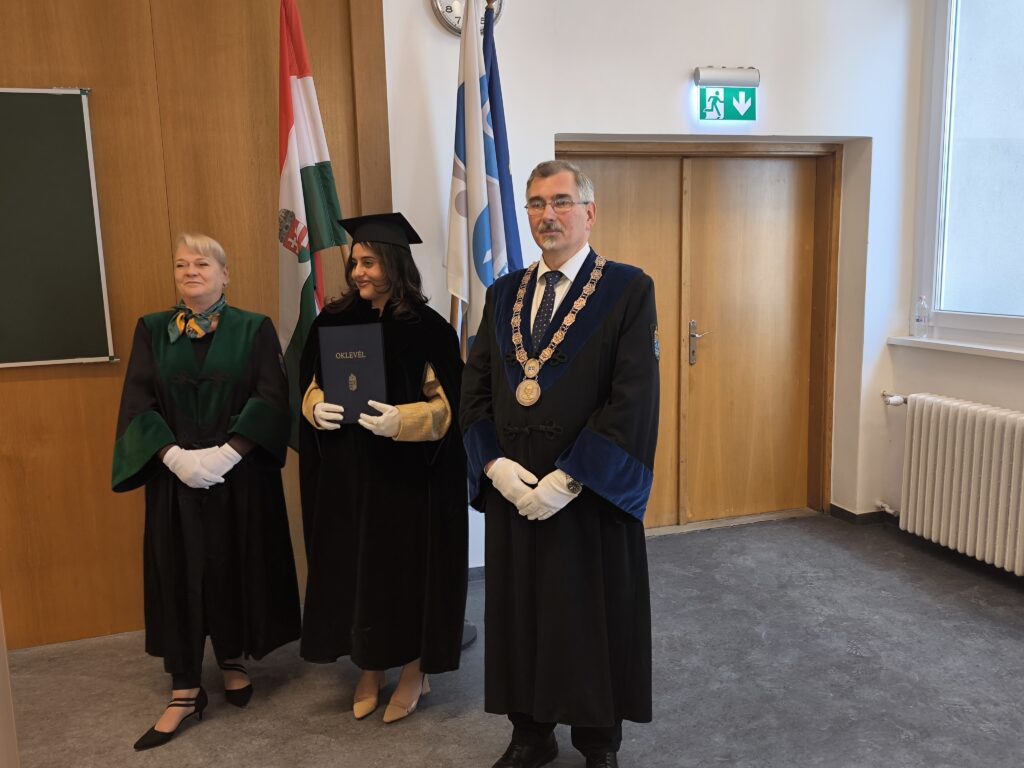
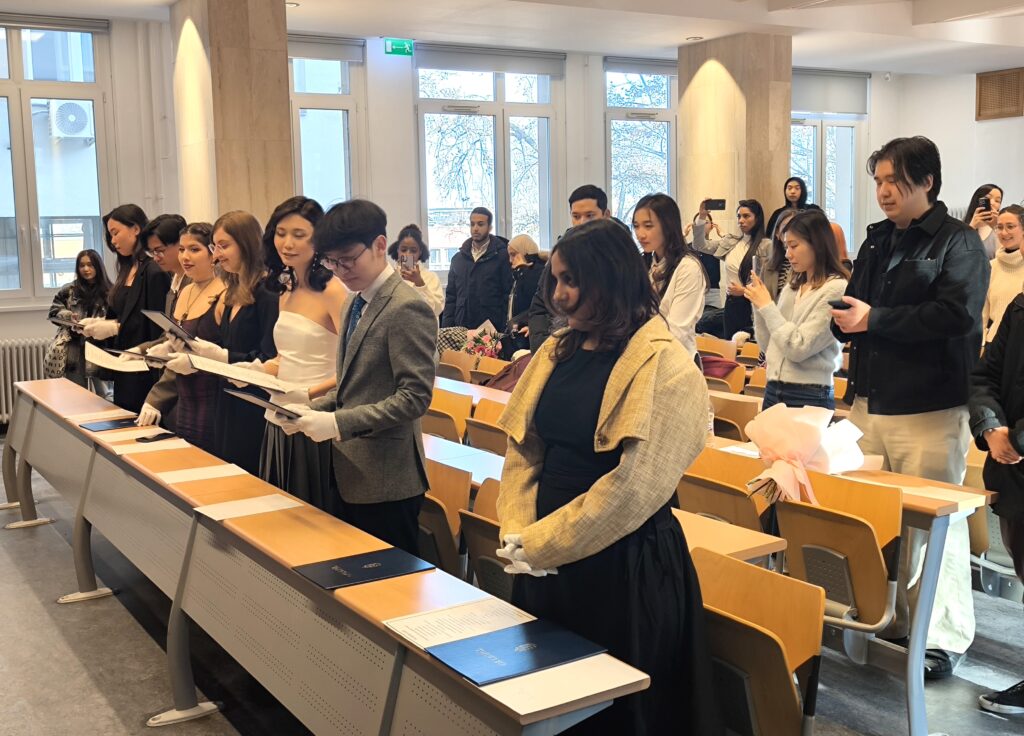
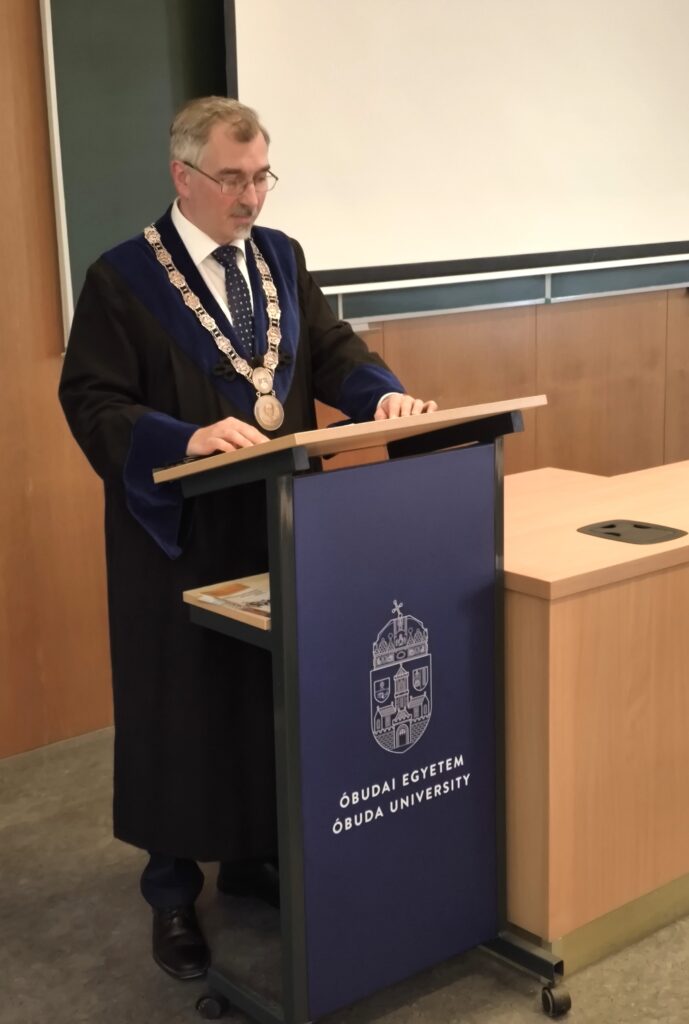
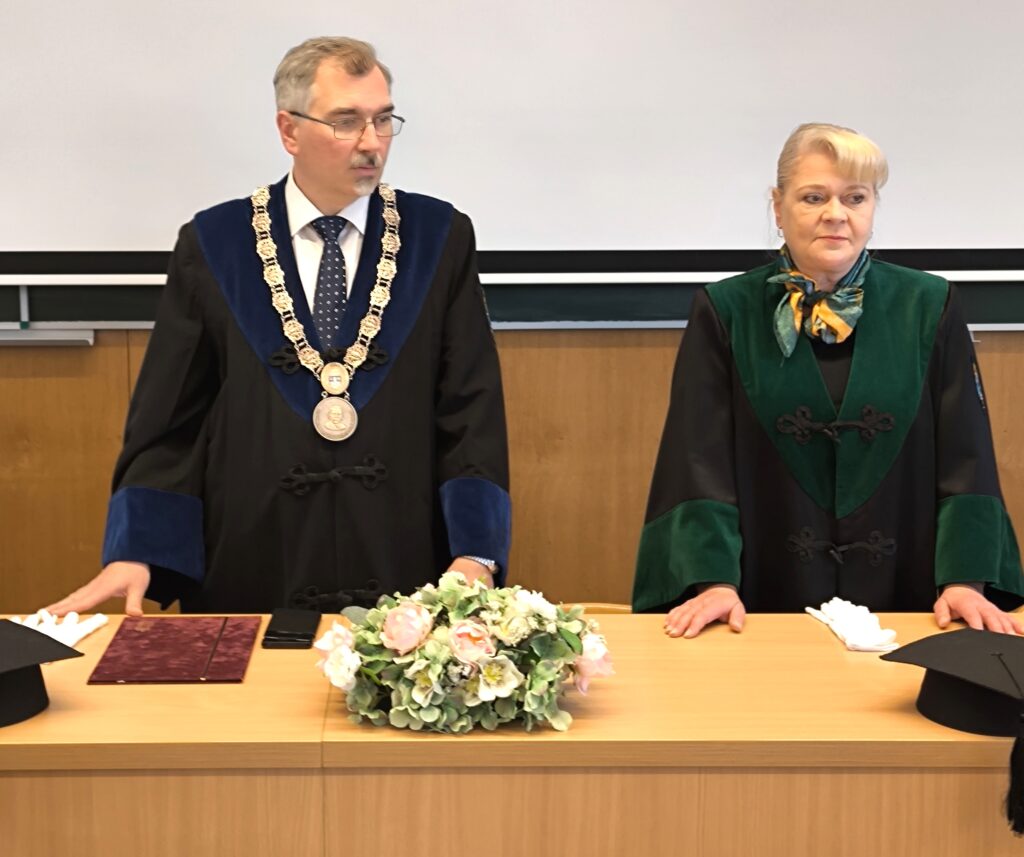
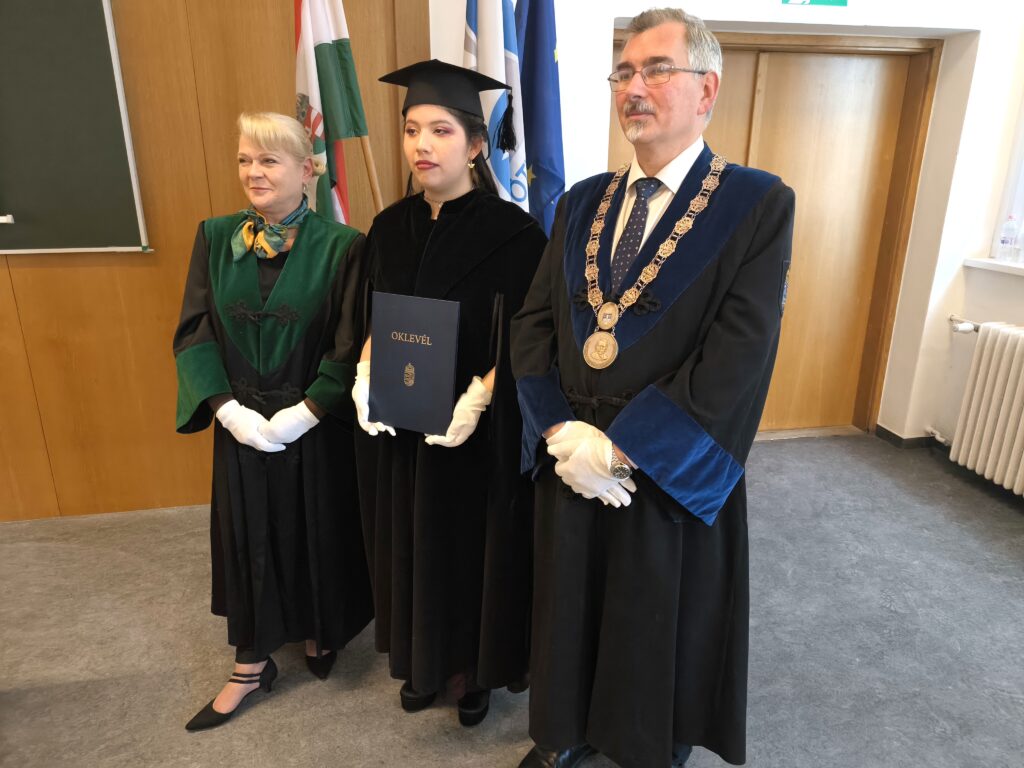
Visit of international students at the Rejtő Faculty
The visit of international students within the framework of the Ceepus RS-0704-12-2324 (Umbrella) – Research and Education in the Field of Graphic Engineering and Design program to the Rejtő Faculty of the Obuda University was a great success. The aim of the program was to harmonize research and education in the fields of graphic design and engineering.
As part of the program, Katarina Maričić and Teodora Gvoka, MSc students from the Department of Graphic Engineering and Design at the University of Novi Sad, arrived at Obuda University. The two students worked together with Dr. habil. Róbert Németh, associate professor, and got acquainted with the latest technologies and developments of the faculty.
During their visit, the students had the opportunity to get to know the work of the faculty’s teachers and researchers. The joint work resulted in numerous new ideas, and the students gained valuable experience in the intersection of graphic design and engineering.
Regarding the visit, Dr. habil. László Koltai dean emphasized: „The Ceepus program plays an important role in enabling universities and research institutions in the region to cooperate and work together to develop various scientific fields. The Rejtő Faculty of Obuda University is committed to such cooperation, as it contributes to increasing the institution’s international recognition and provides new opportunities for students to learn and develop.”
The cooperation between the two universities will continue in the future, as both parties are interested in ensuring that students acquire the most up-to-date knowledge and work with the latest technologies.
Global Environmental Challenges – Obuda University Hosts Successful 15th ICEEE Conference
The Rejtő Sándor Faculty of Light Industry and Environmental Engineering at Obuda University successfully hosted its 15th International Council of Environmental Engineering Education (ICEEE) online conference, themed „Global Environmental Development & Sustainability: Research, Engineering & Management” with a special workshop on Environmental Health and Climate Change. The event garnered significant interest.
The conference was ceremoniously opened by Dr. Viktória Sugár, Vice-Rector for Sustainability and Key Developments at Obuda University, Dr. Rita Bodáné Kendrovics, Vice-Dean for Education at the Faculty, and Prof. Dr. Hosam Bayoumi Hamuda, President of ICEEE.
Over two days, the event provided an international platform for the latest research in sustainability, environmental protection, public health, soil biology, natural sciences, and industry. Over 150 participants from 40 countries joined (including 7 plenary speakers), and presentations were held simultaneously in six sections, fostering scientific dialogue and exchange.
The conference’s success was attributed to the high-level academic presentations and the large number of attendees, further solidifying Obuda University’s internationally recognized role in environmental and sustainability research.
A special workshop organized by Prof. Dr. Hosam Bayoumi Hamuda was a conference highlight. The workshop focused on „Environmental Health and Climate Change.” Prof. Bayoumi addressed the topic of „Environmental Sustainability and Biotechnology: Global Climate Change and Human Health.

